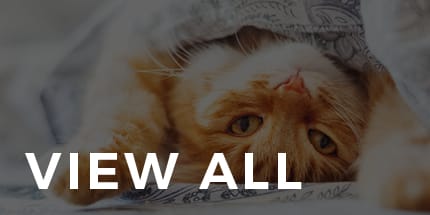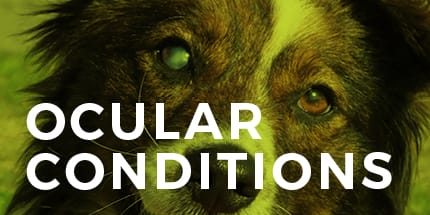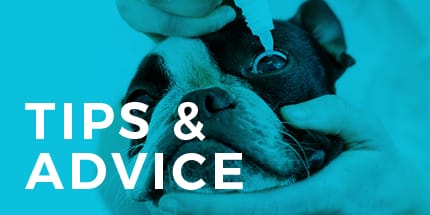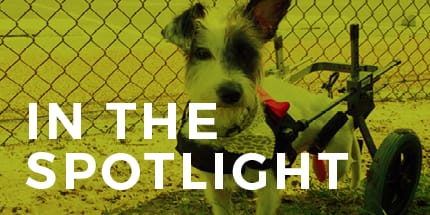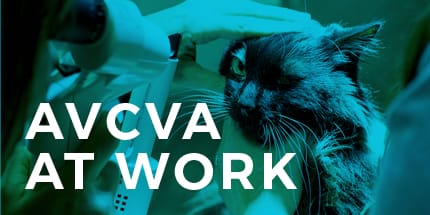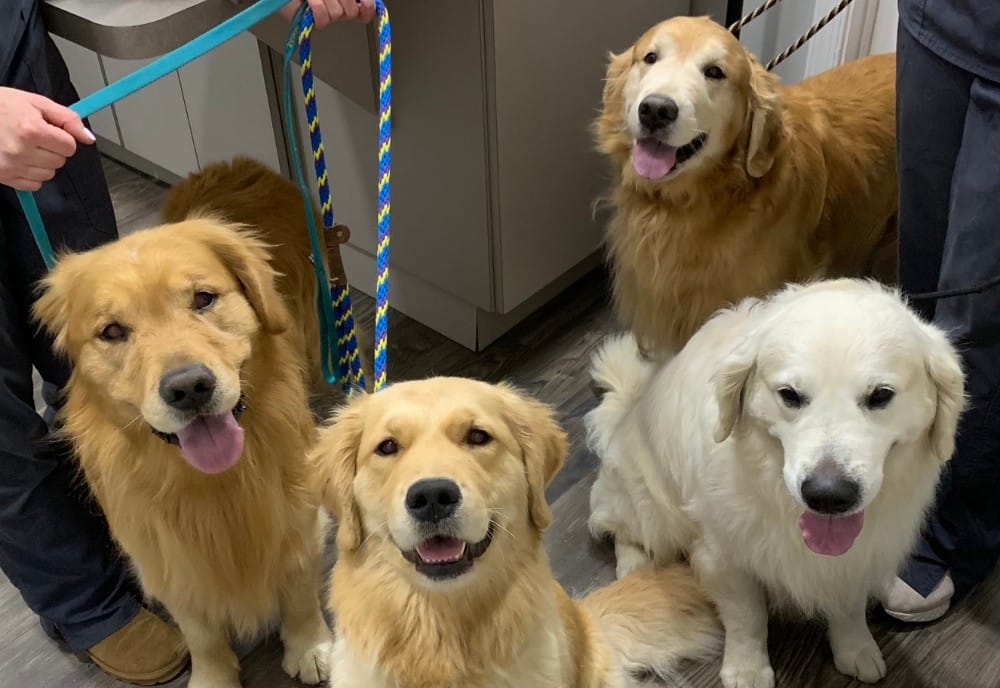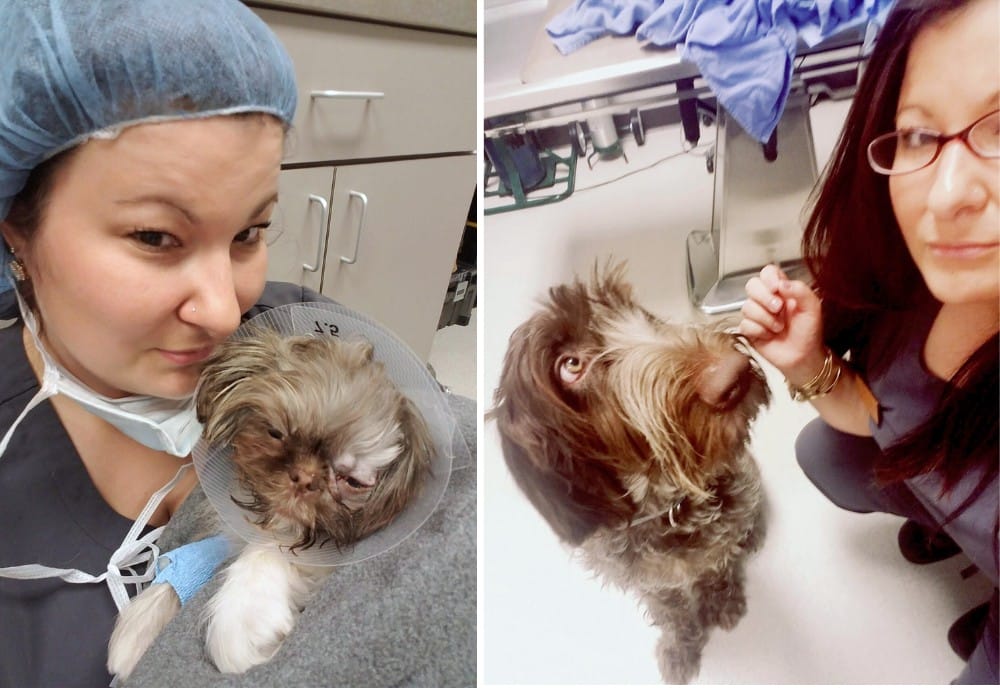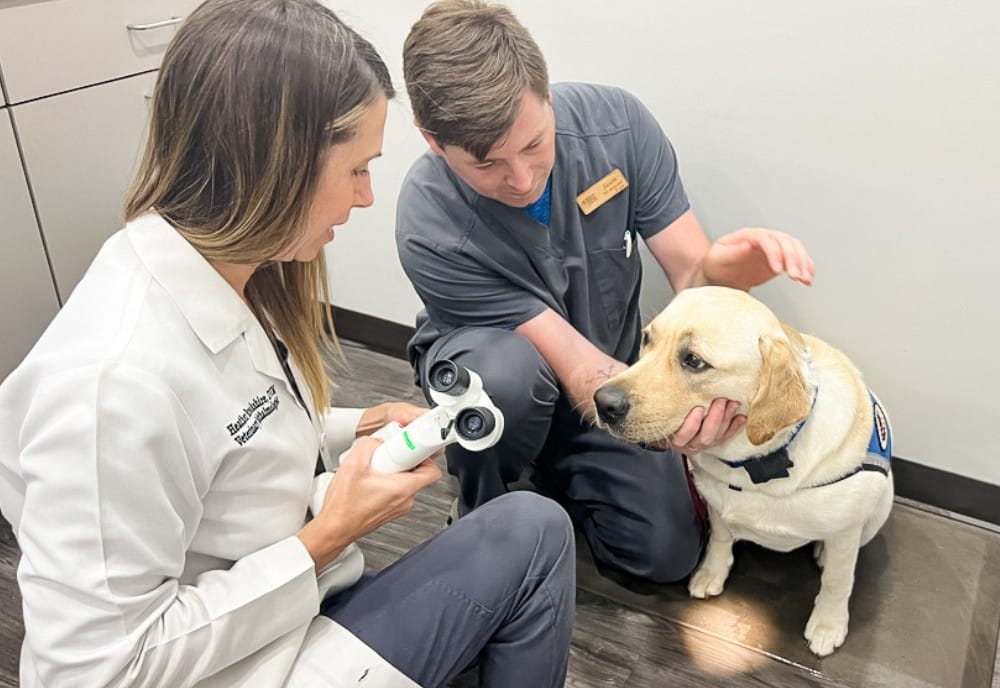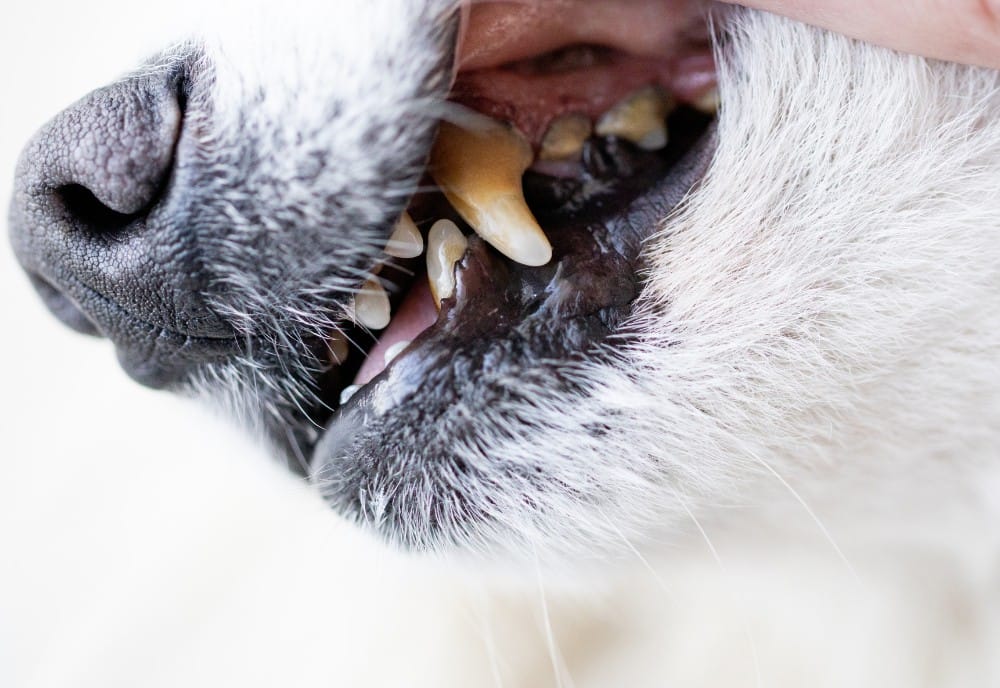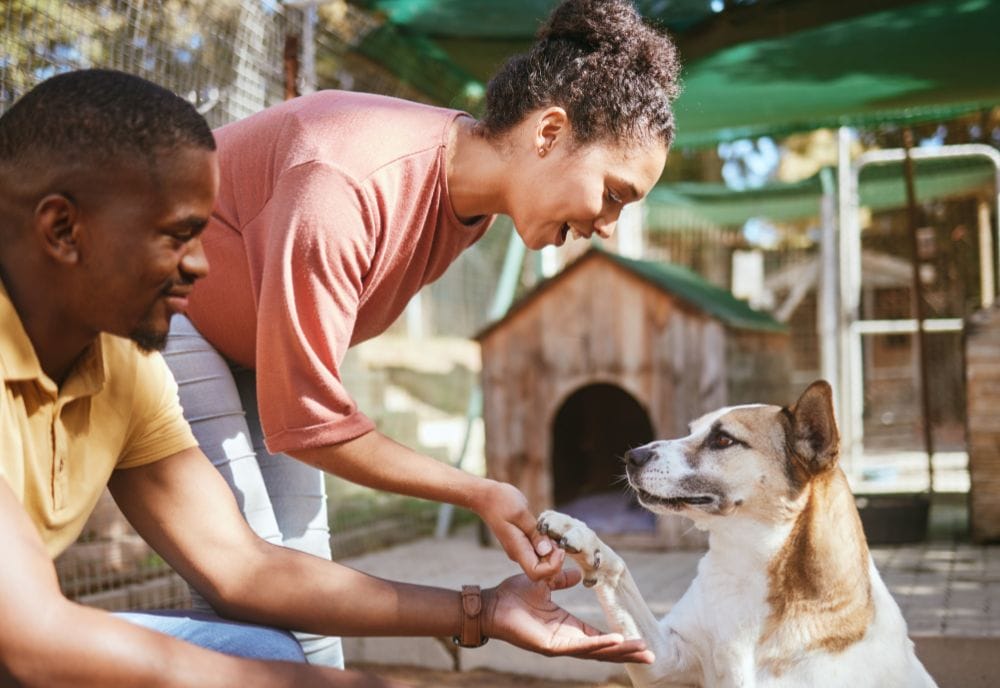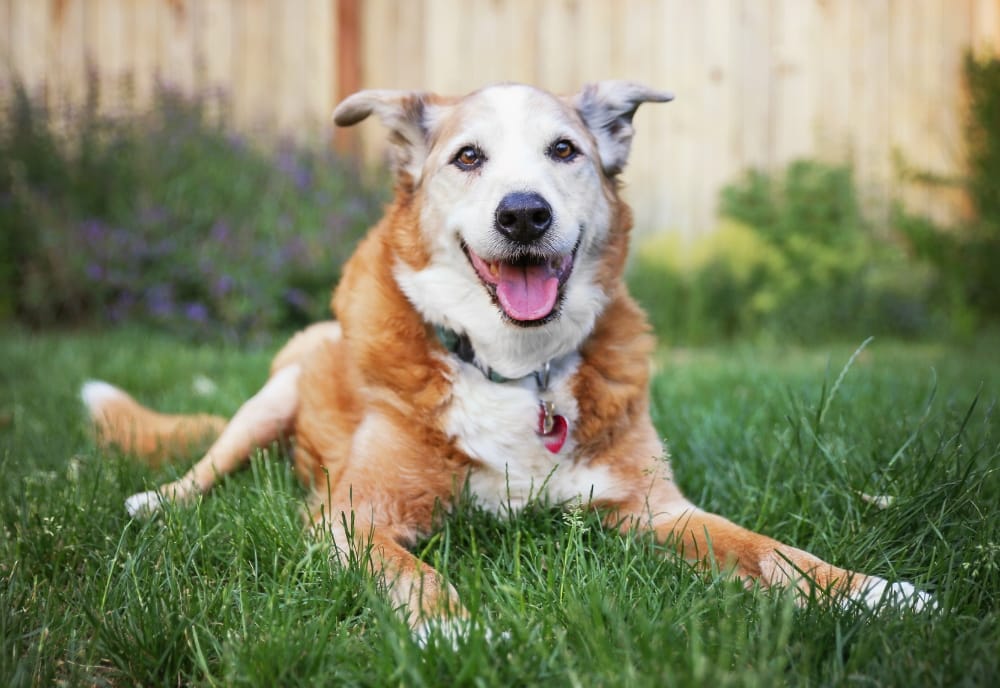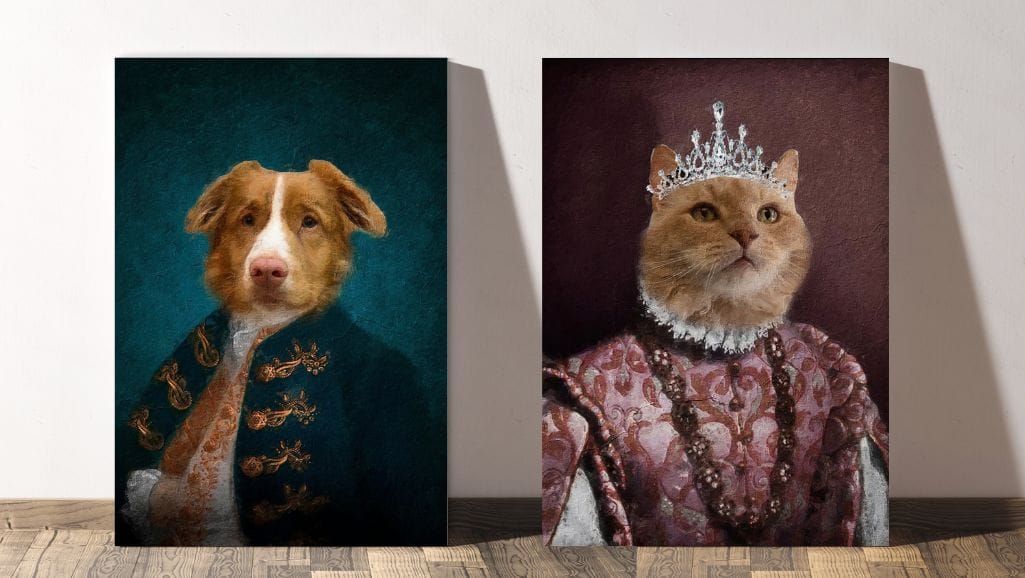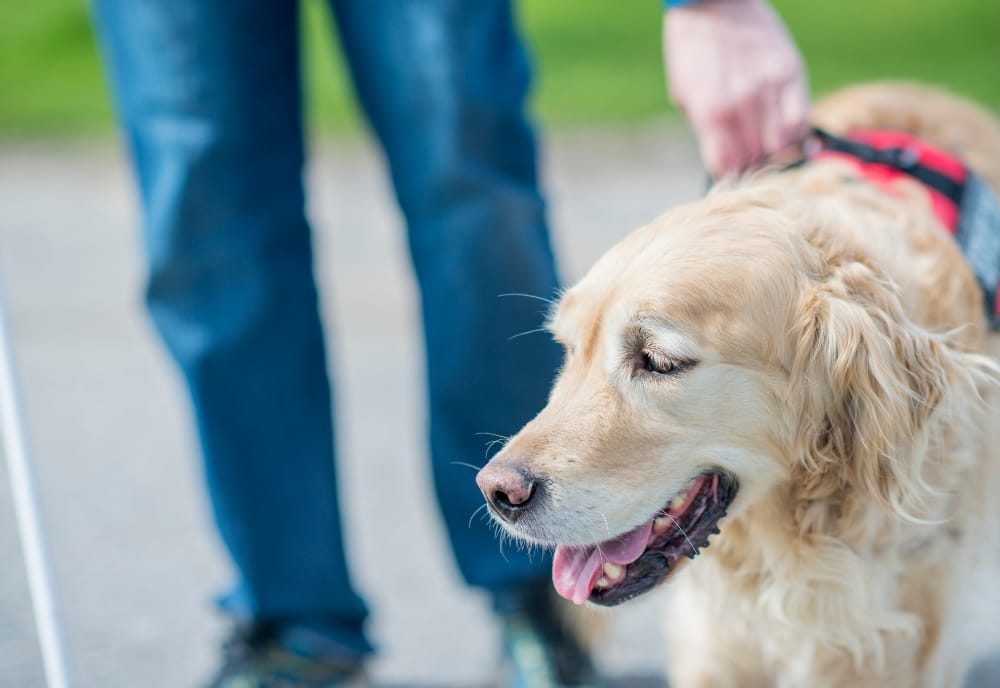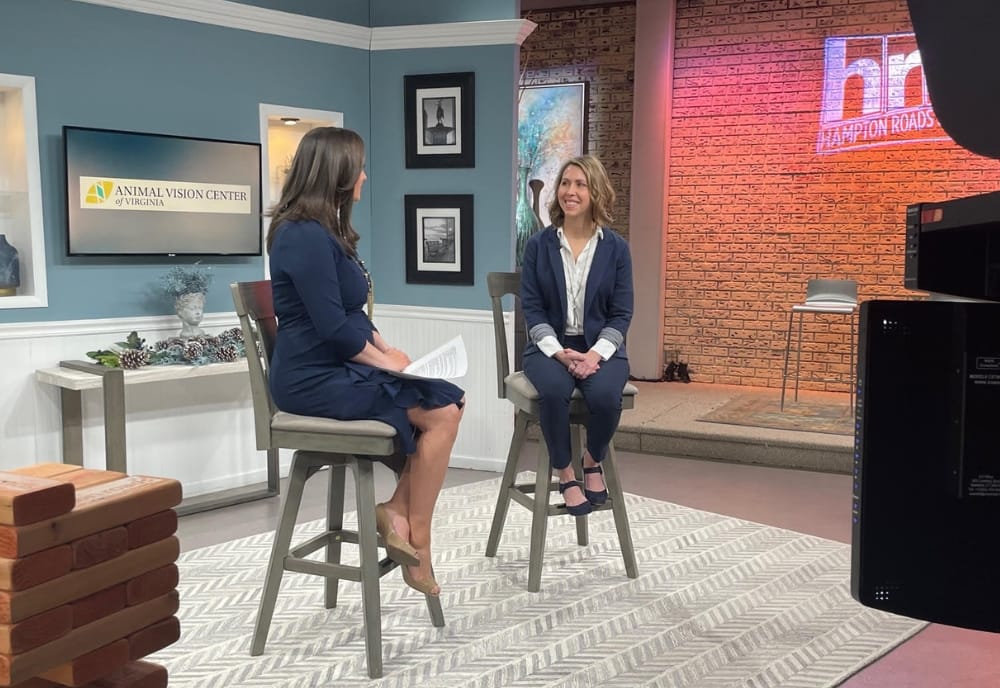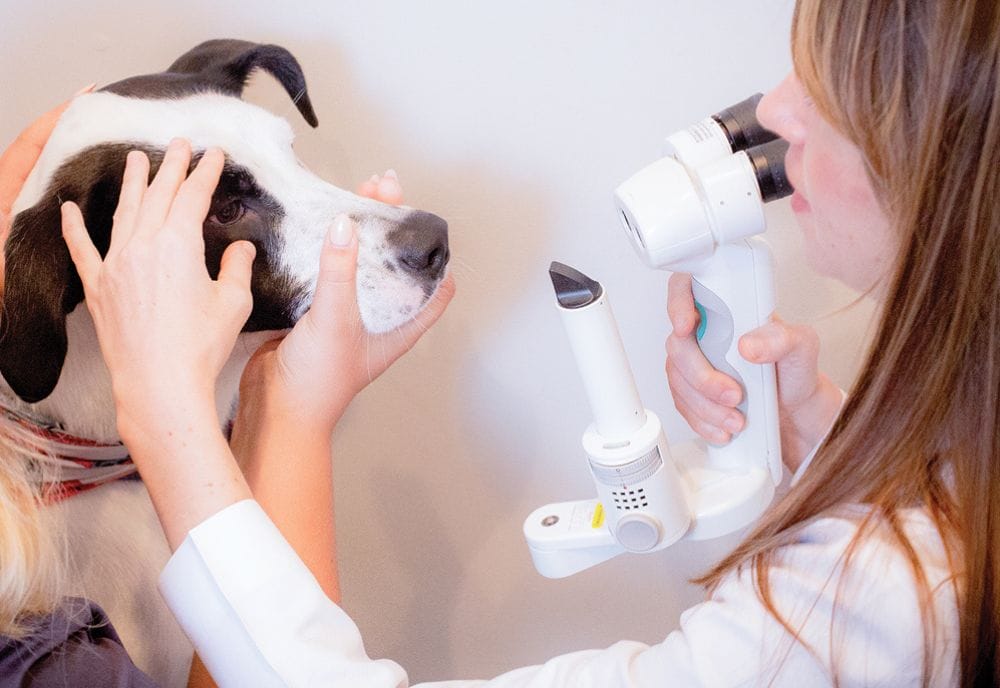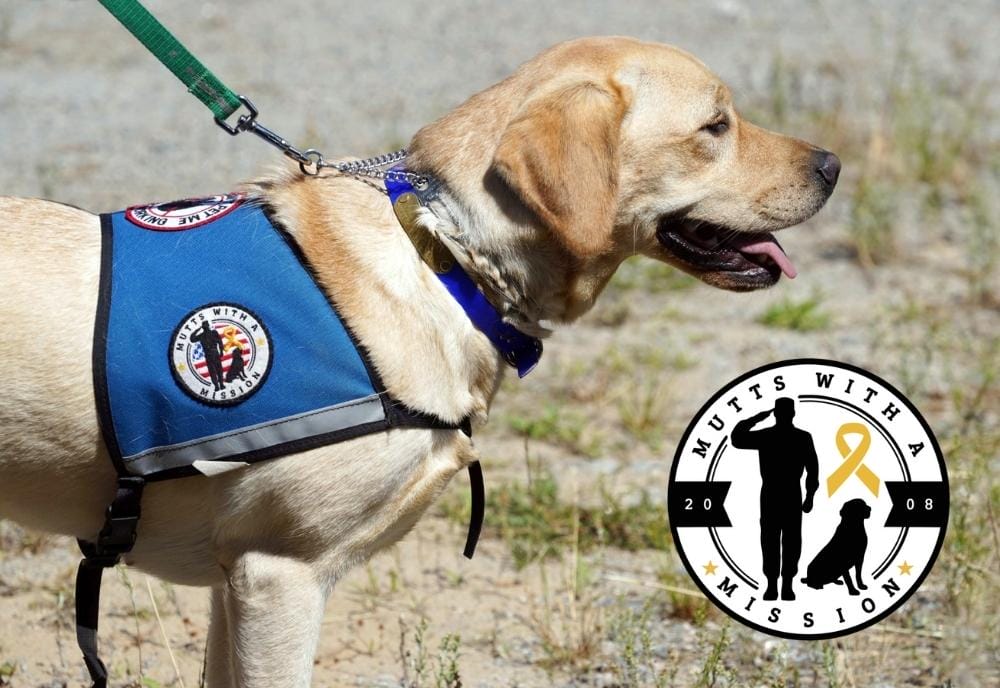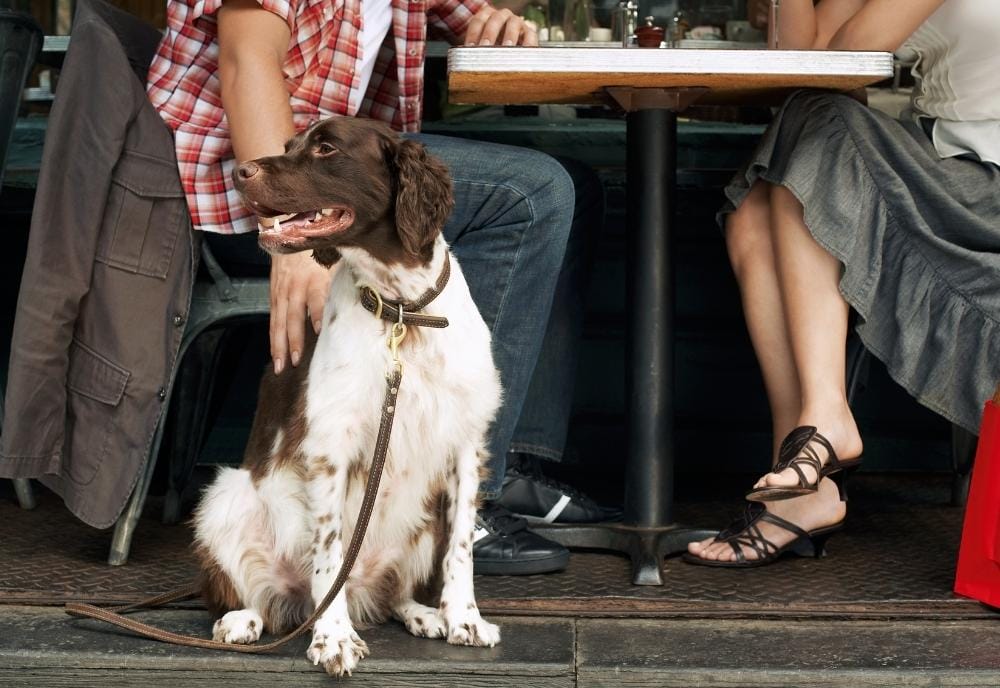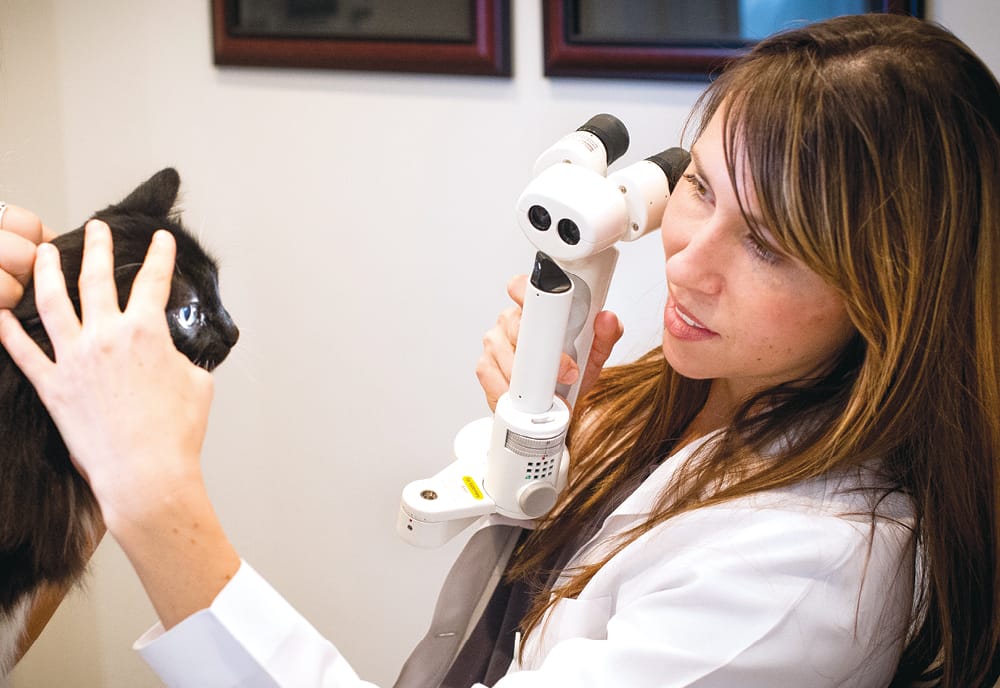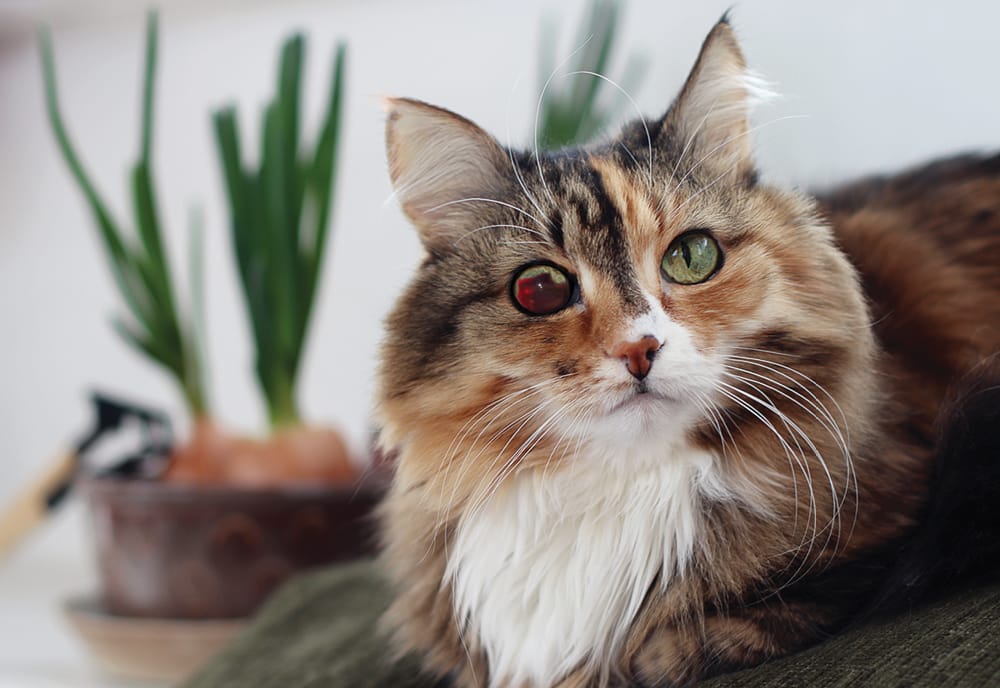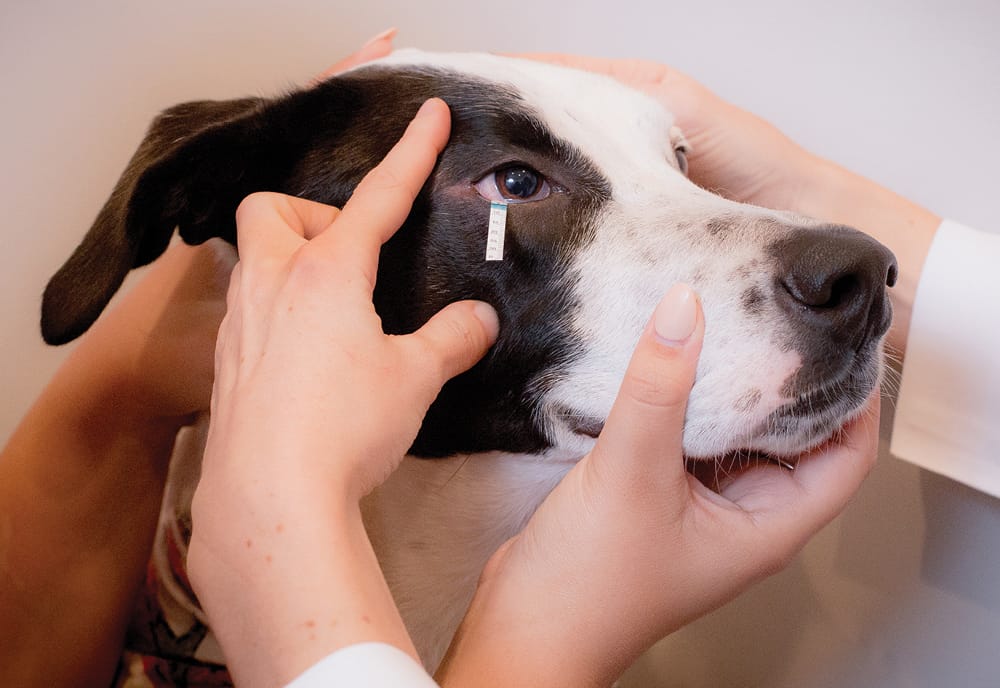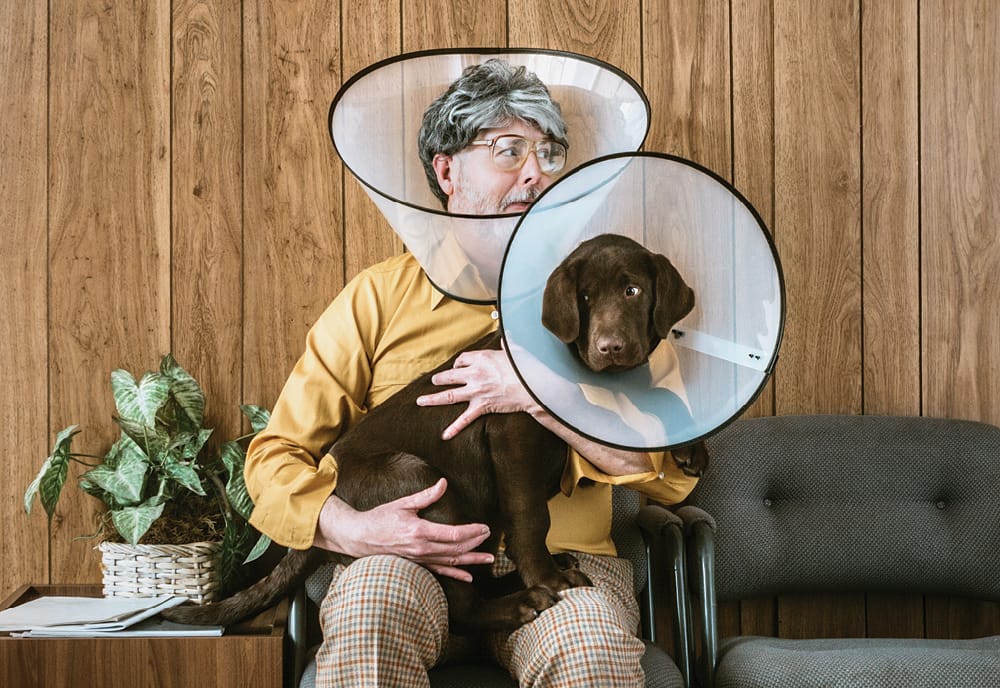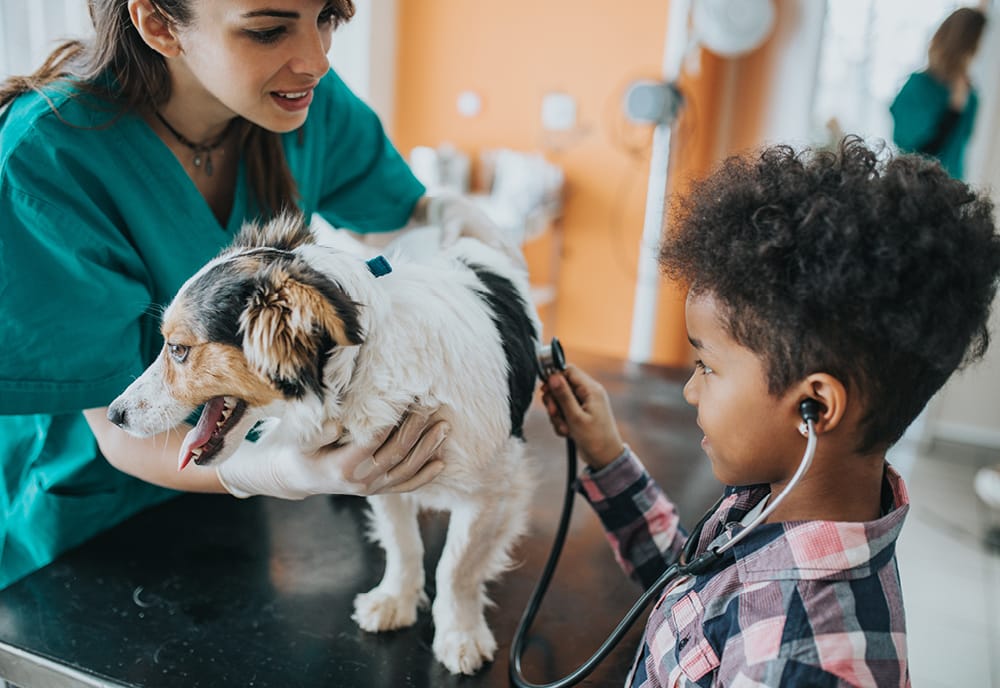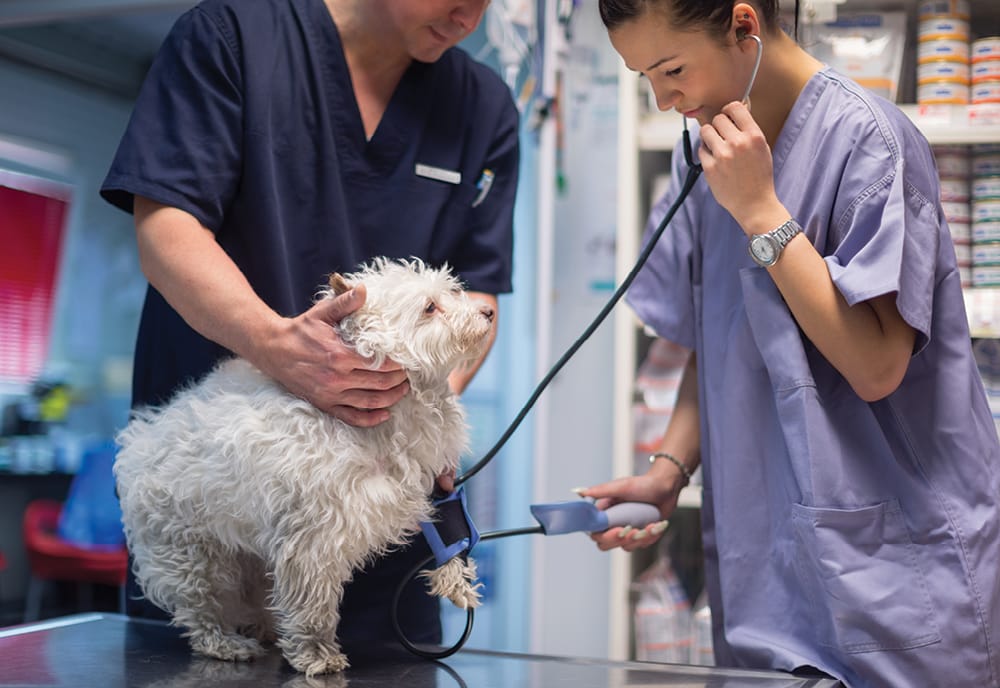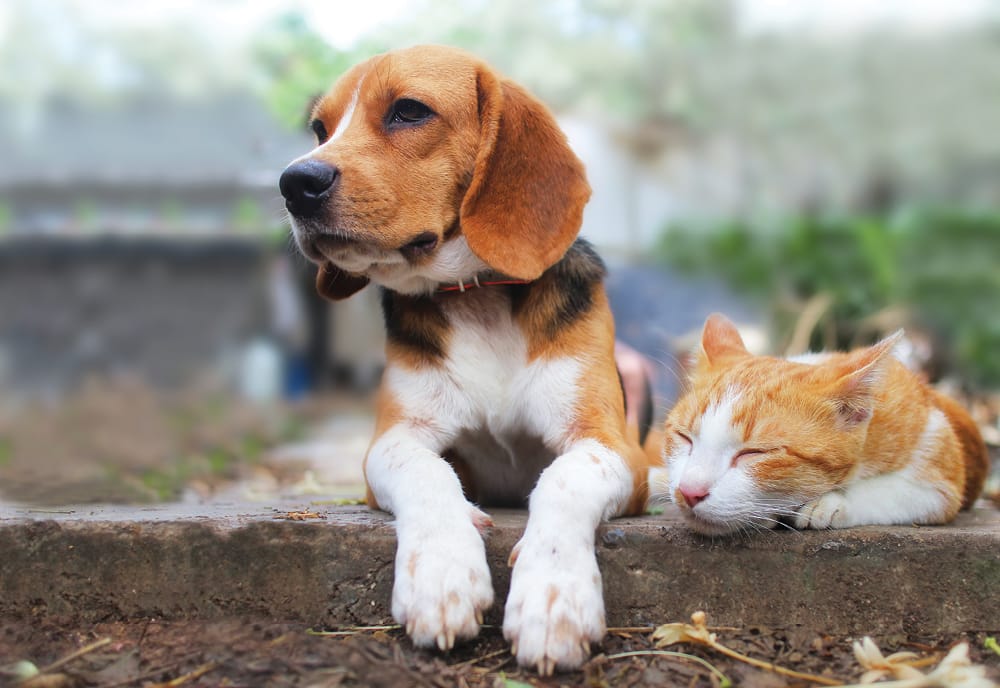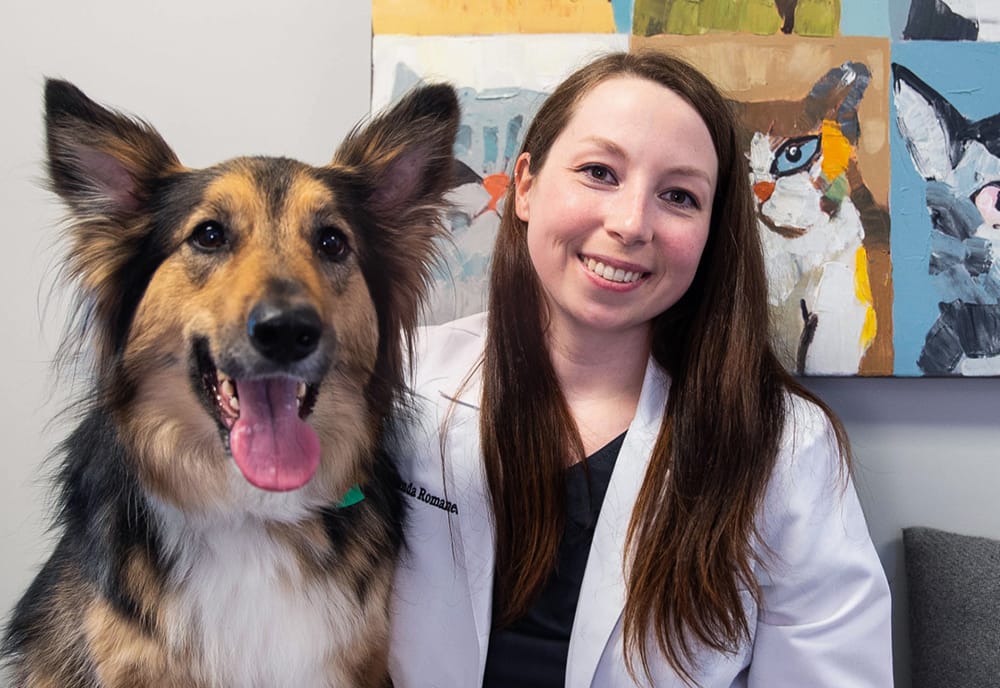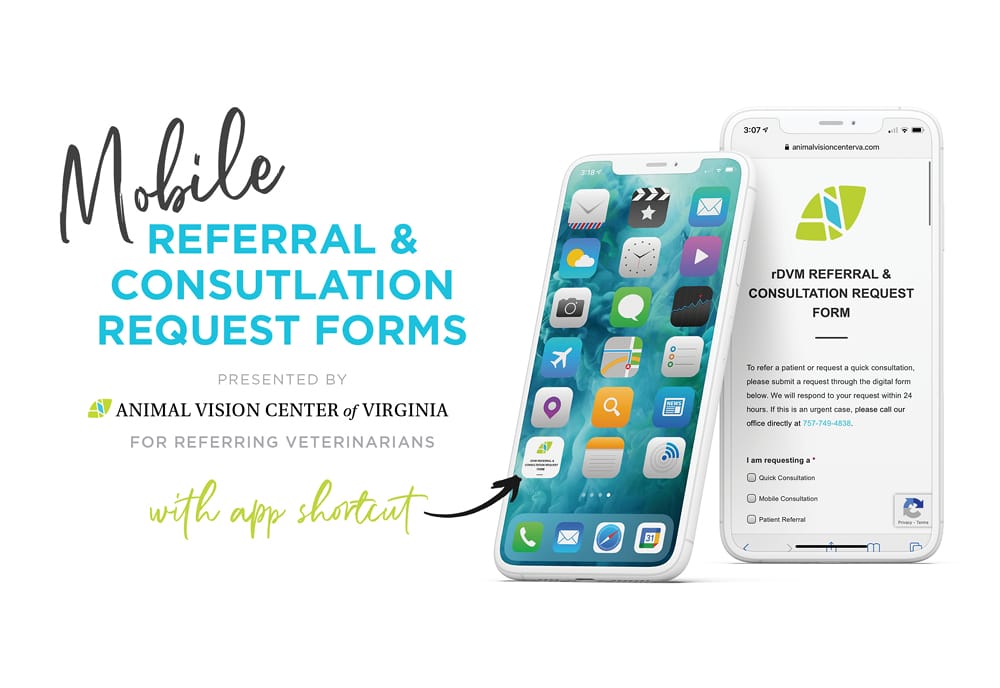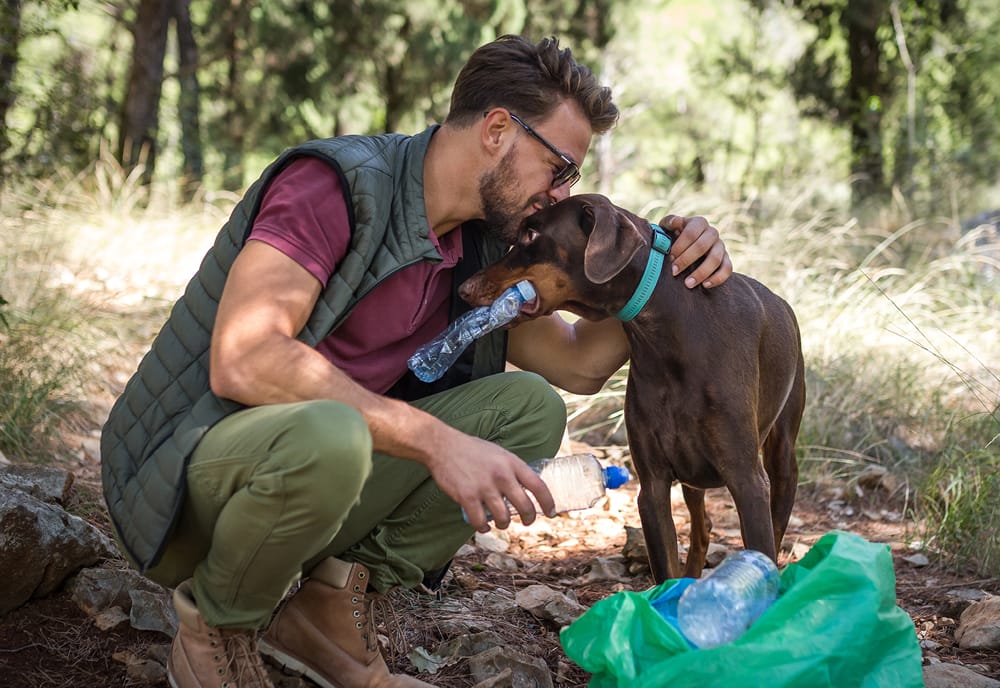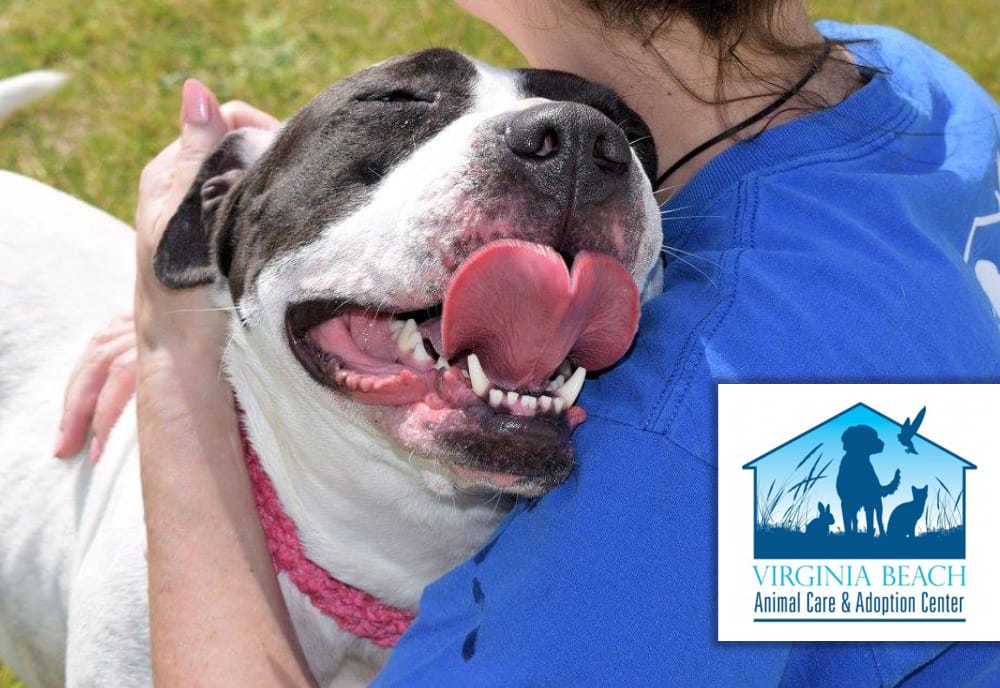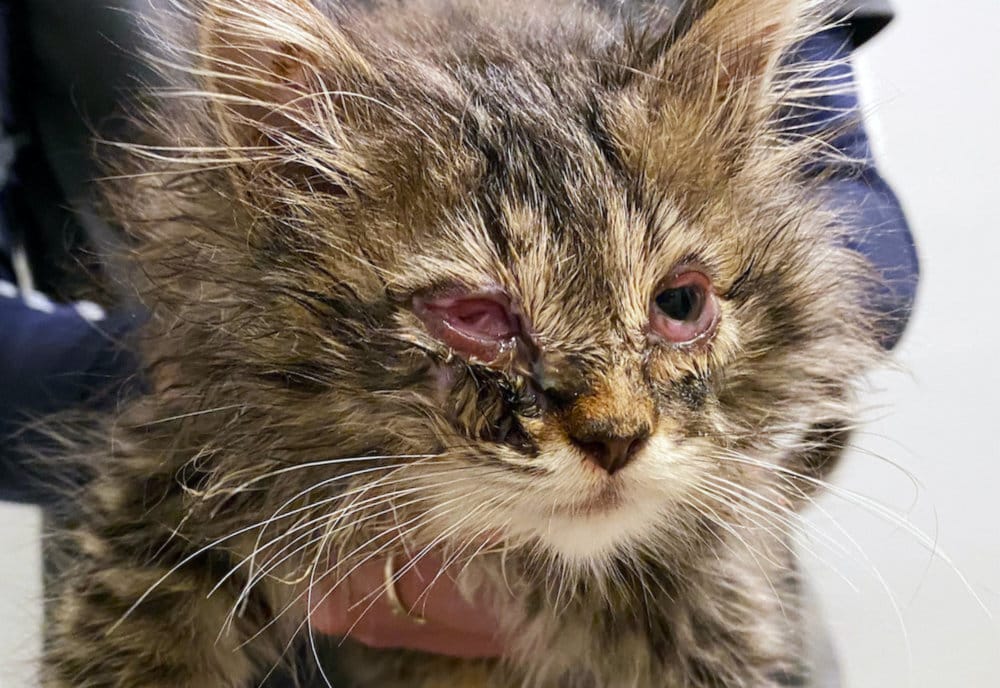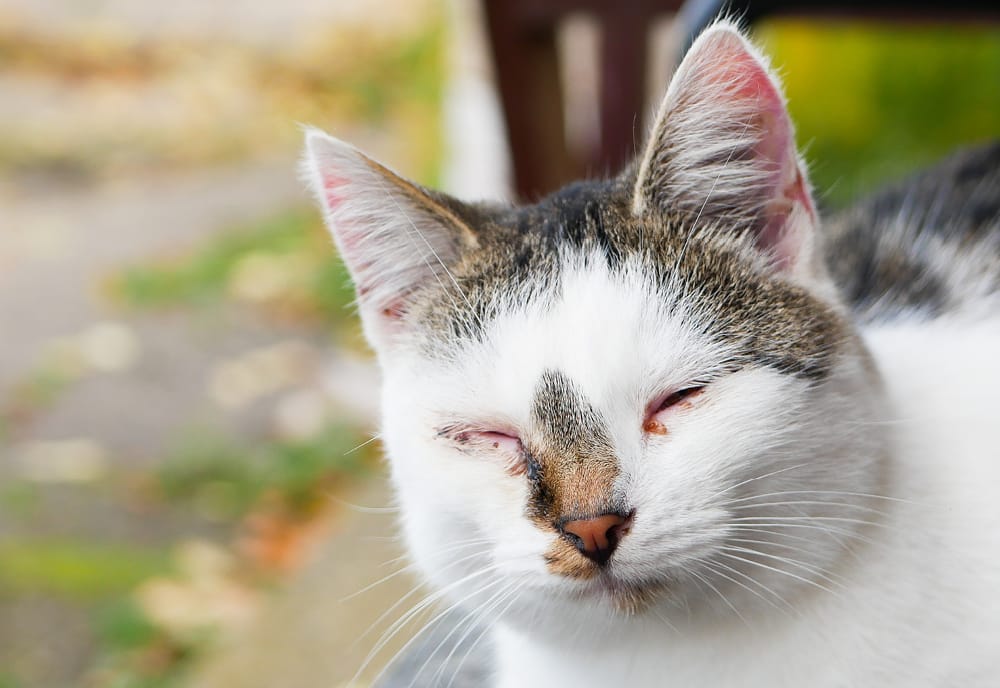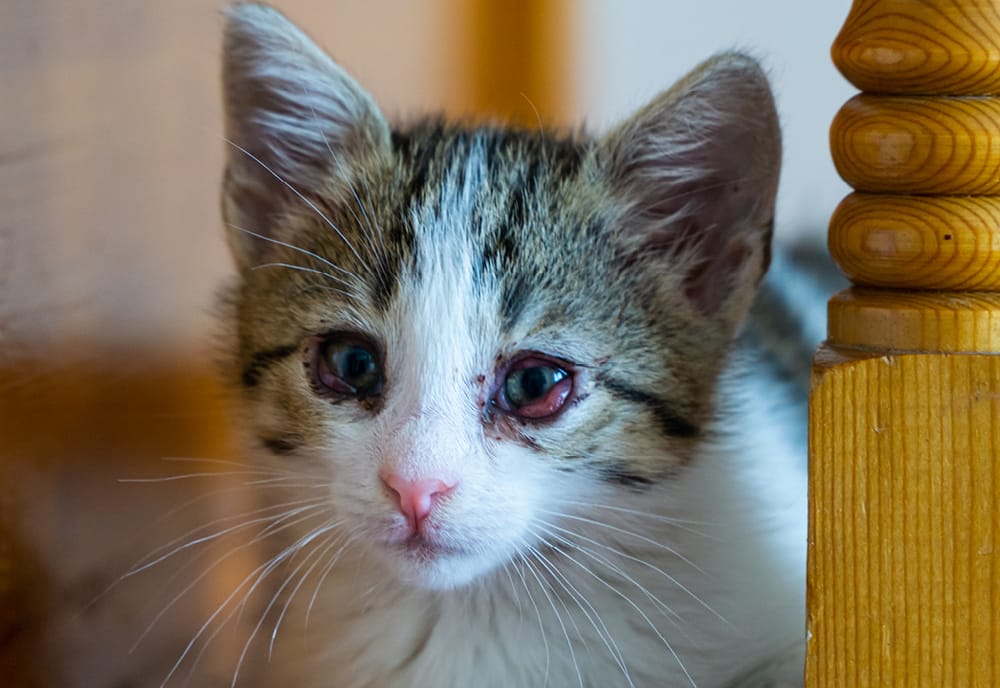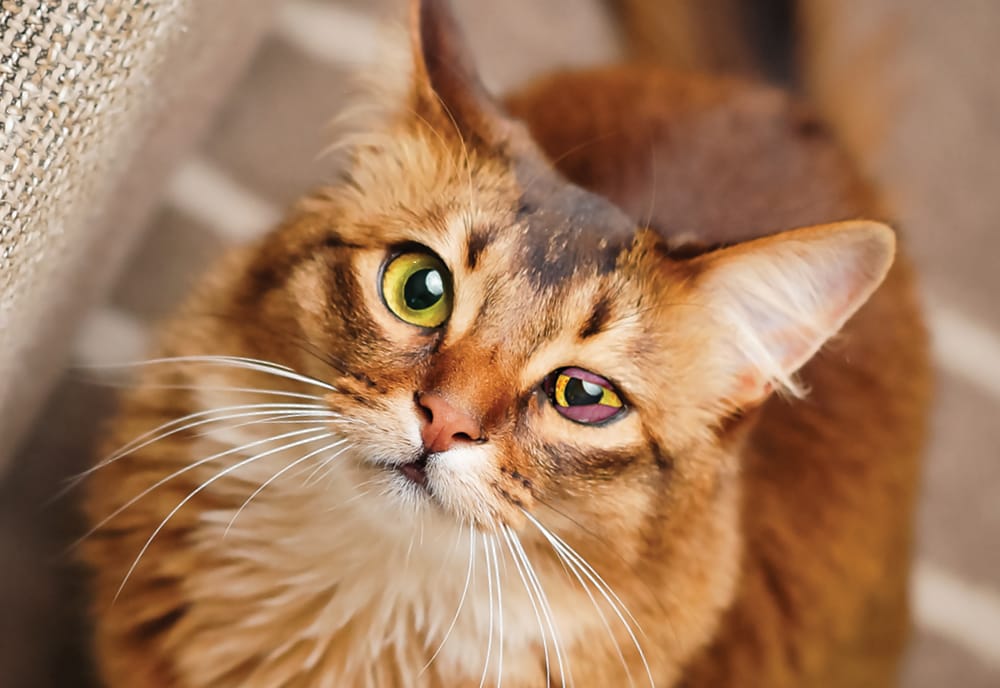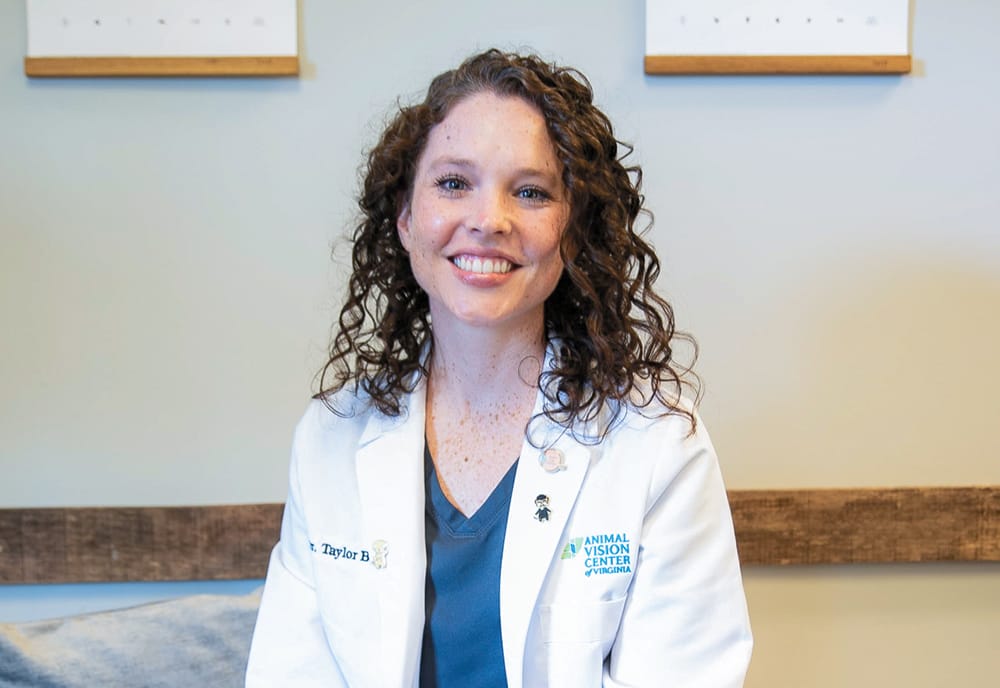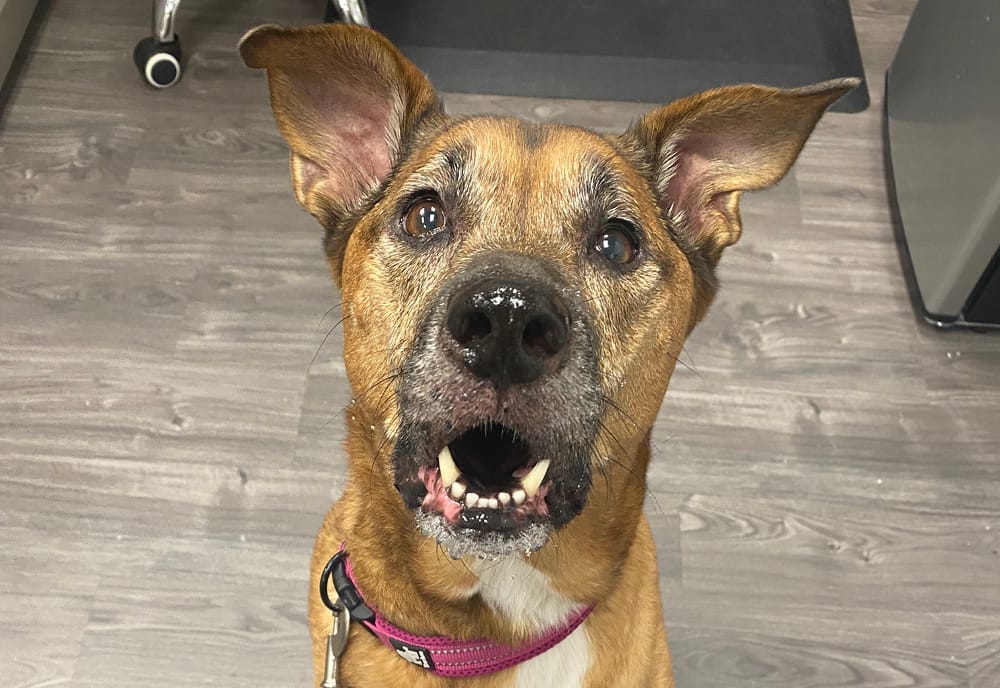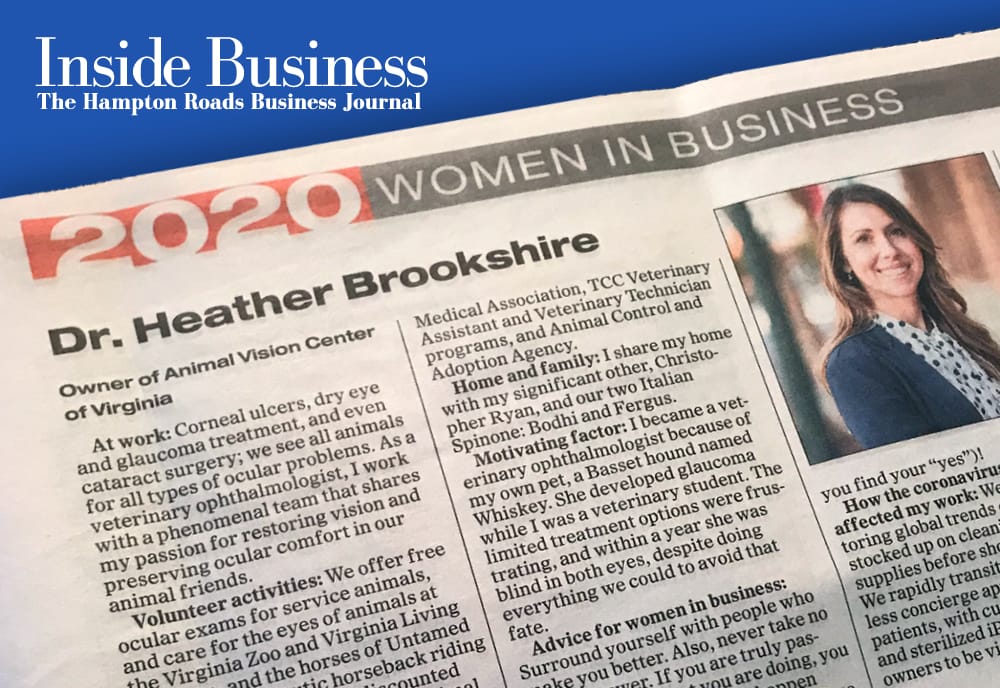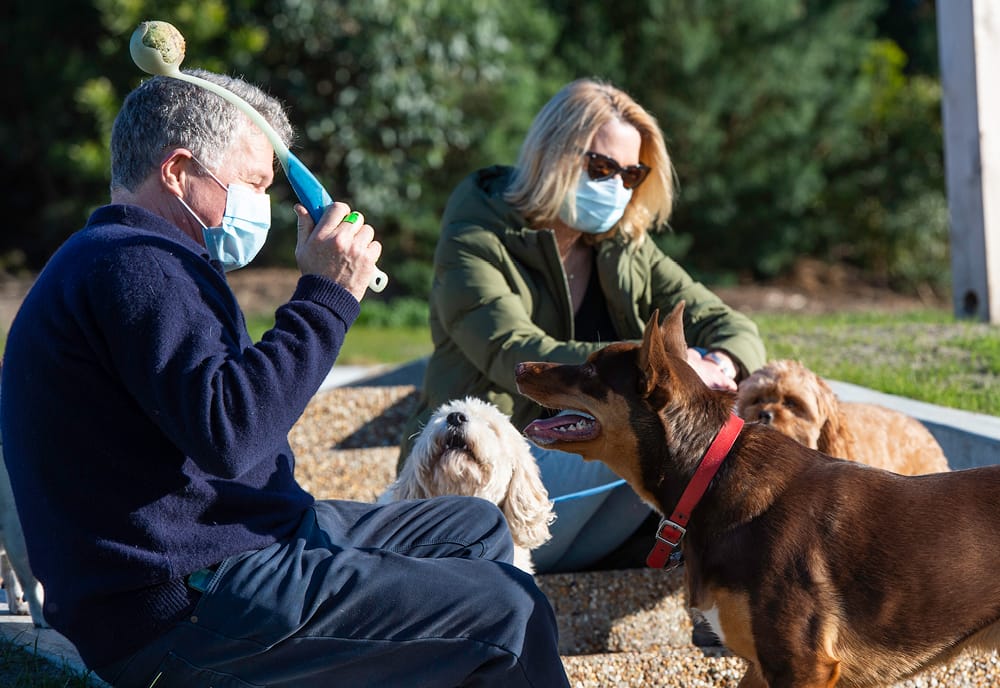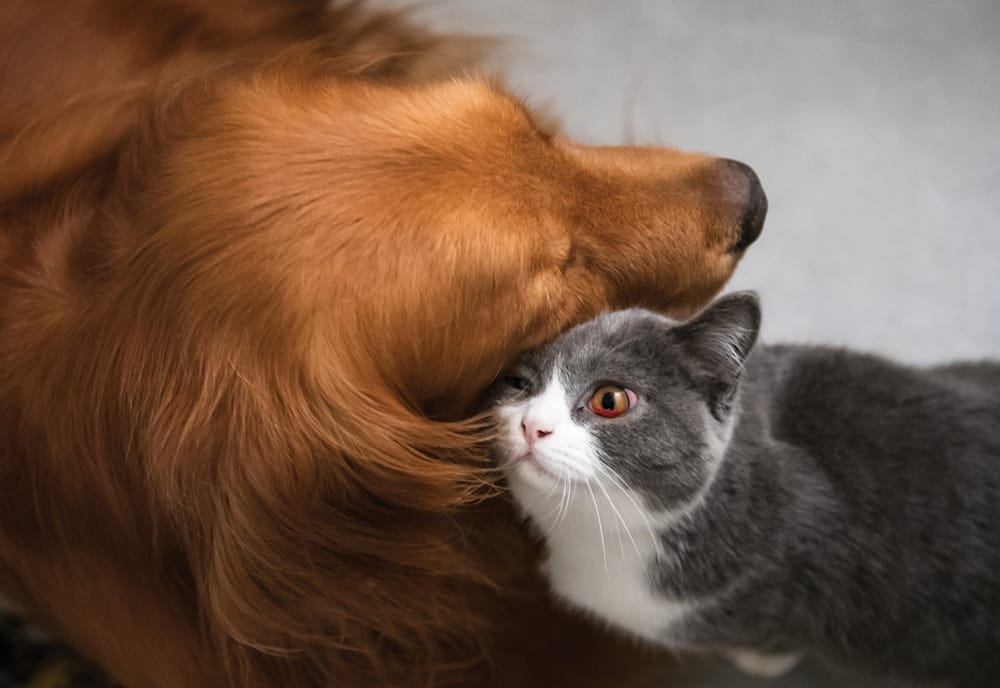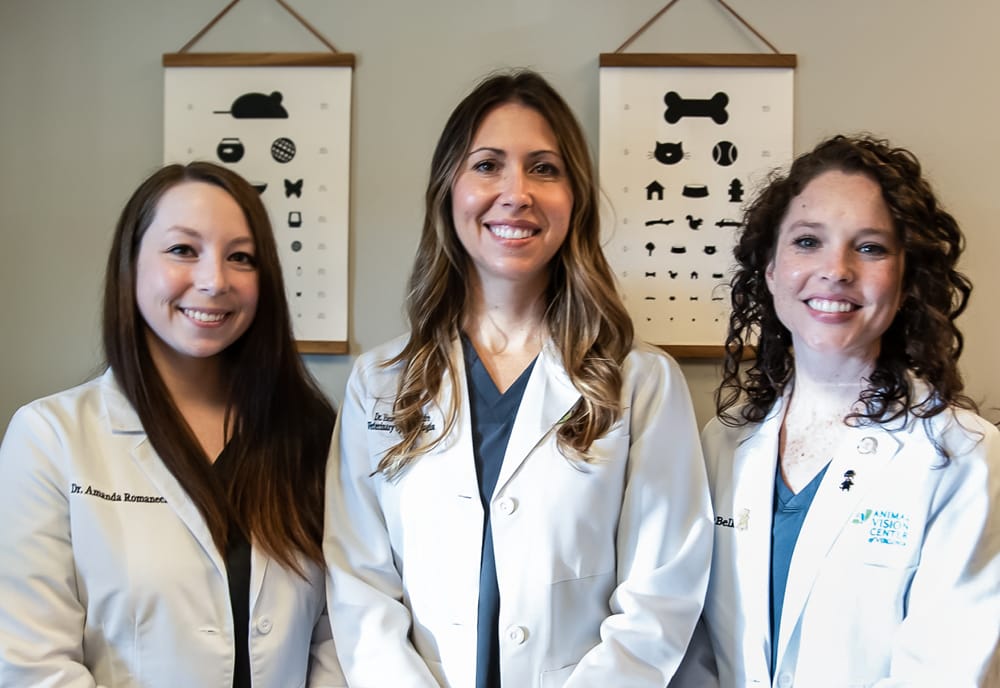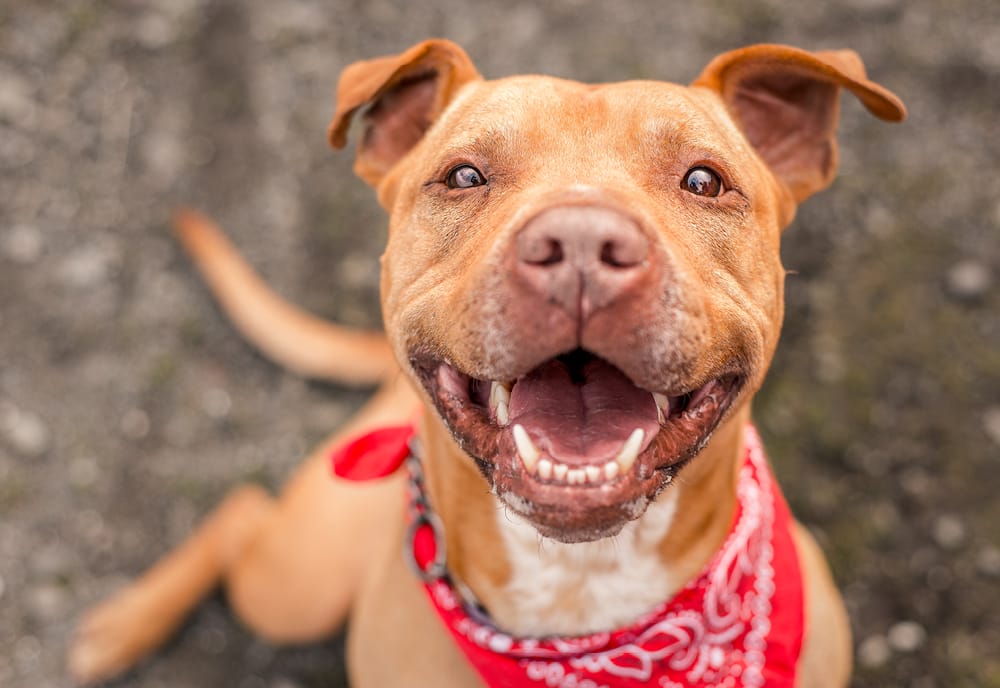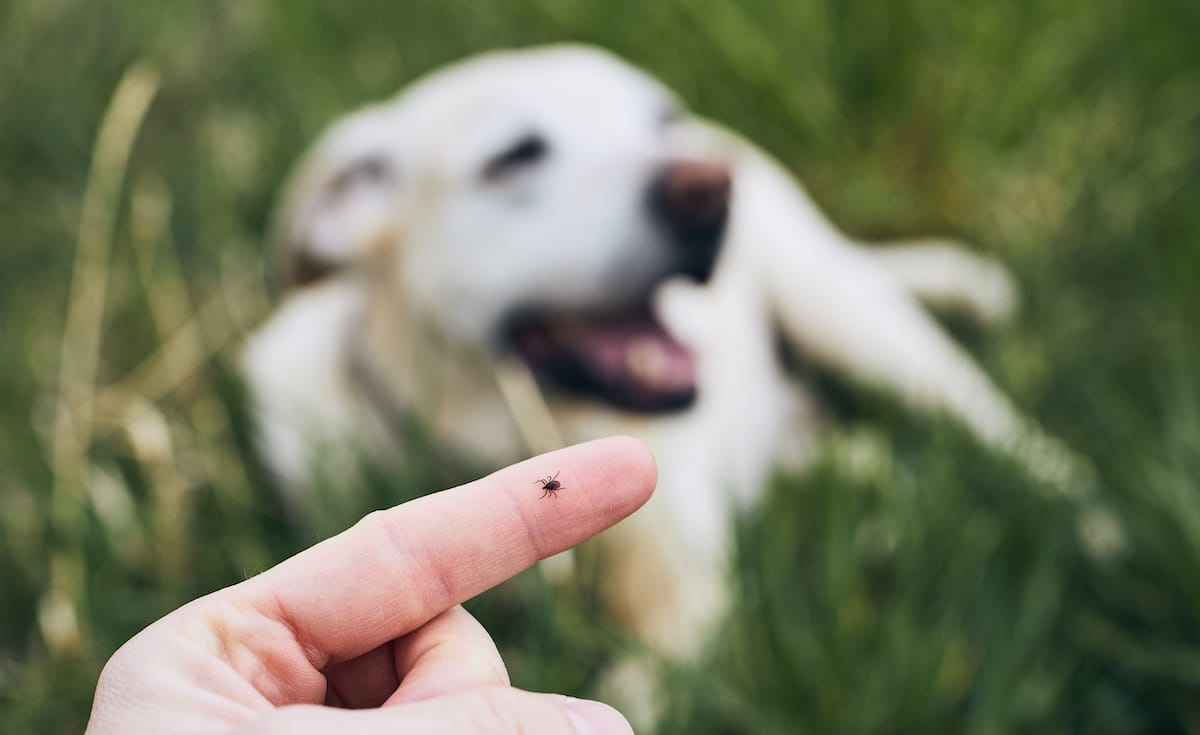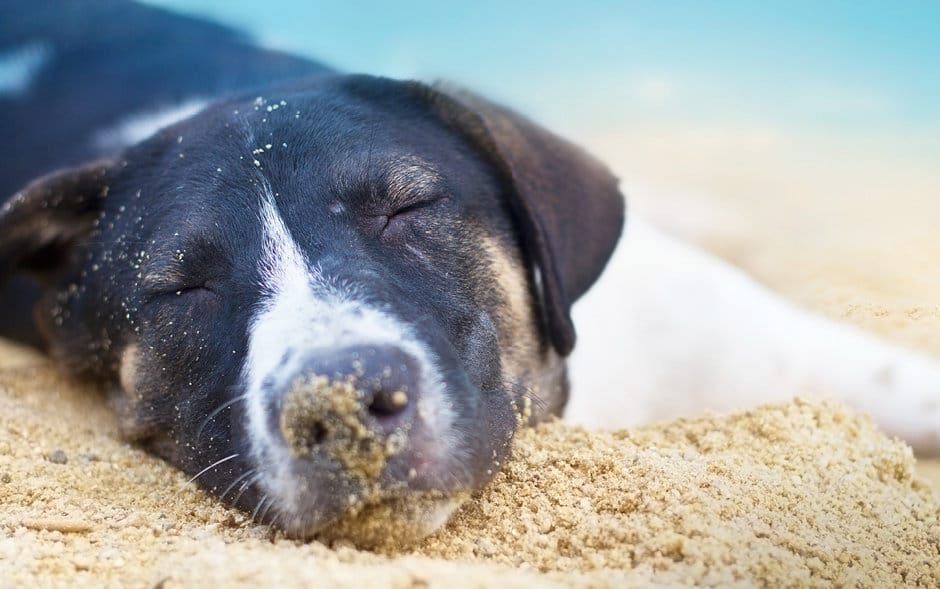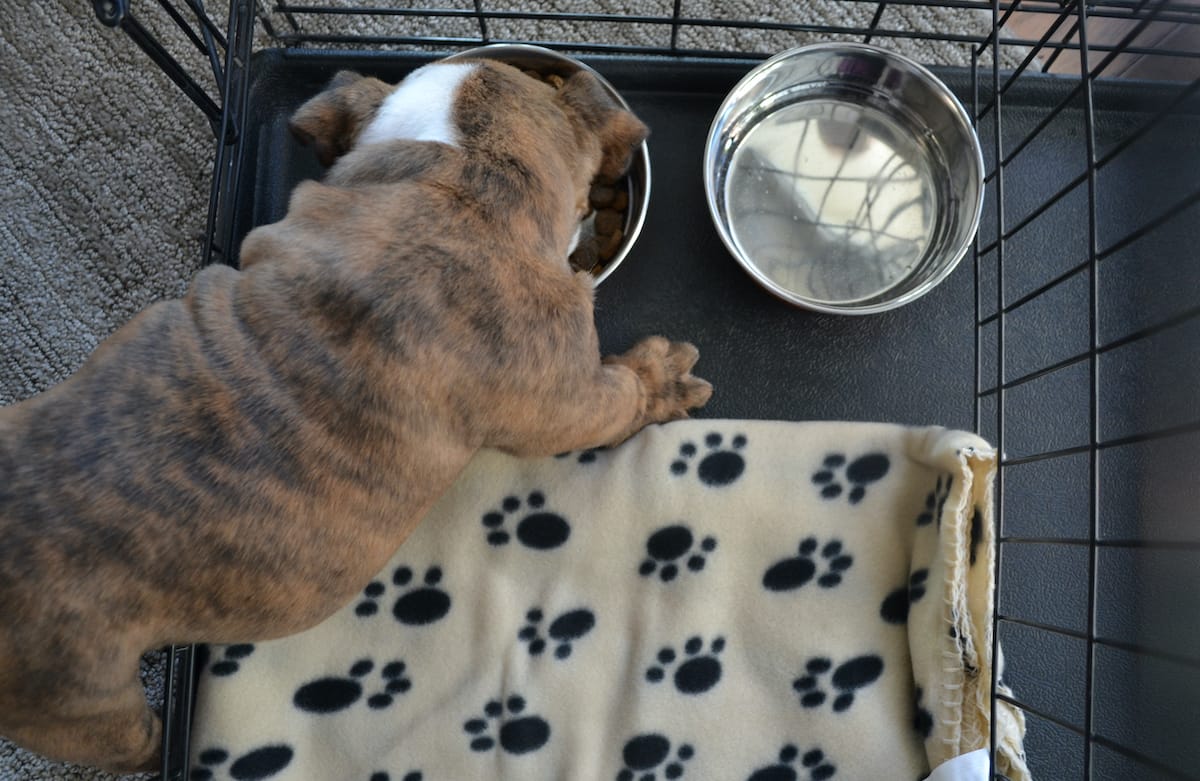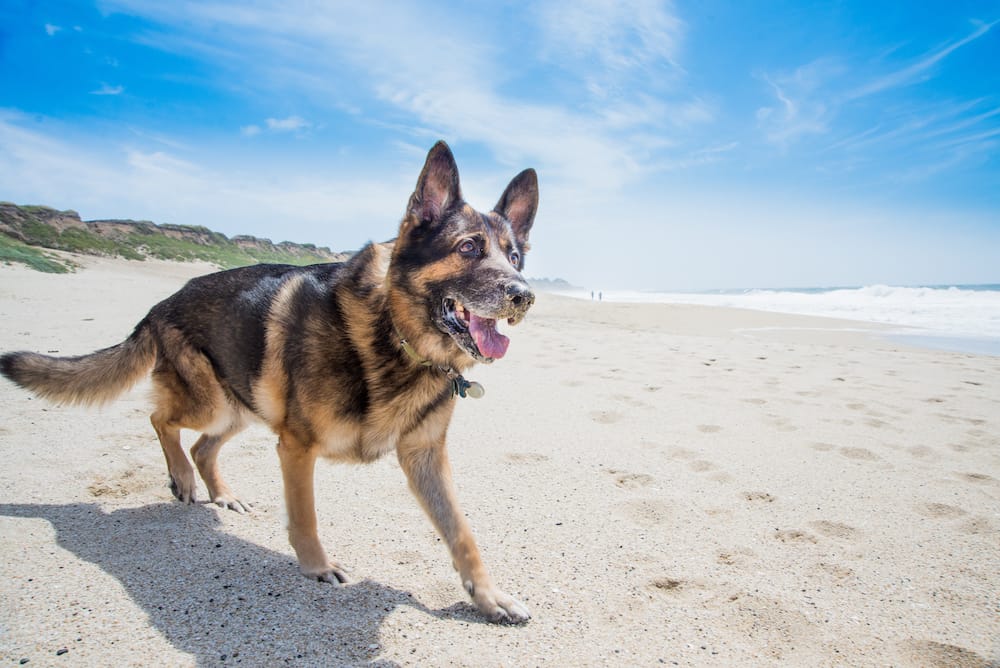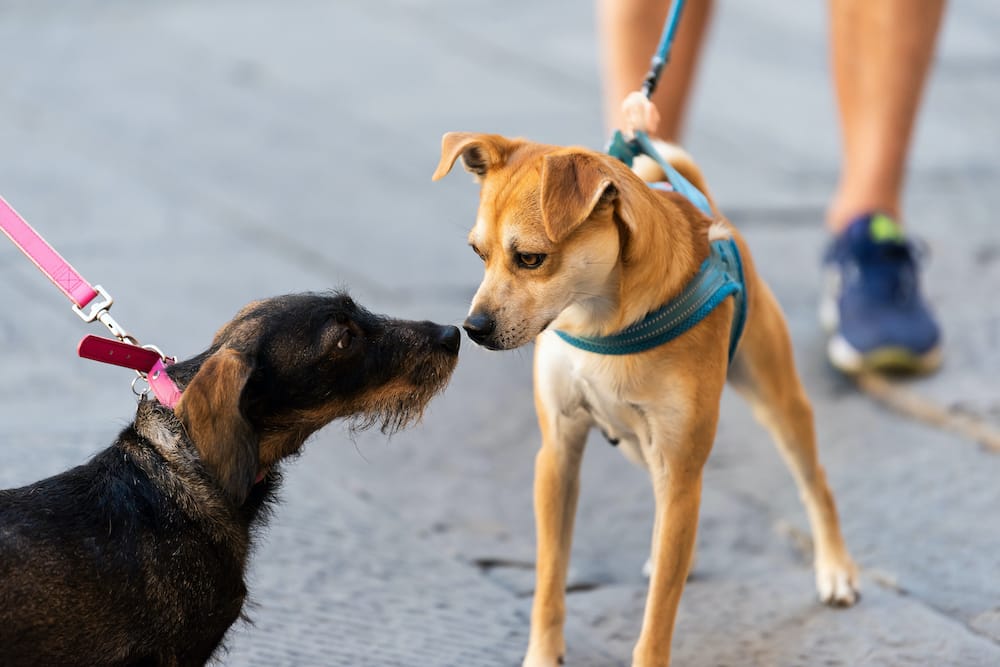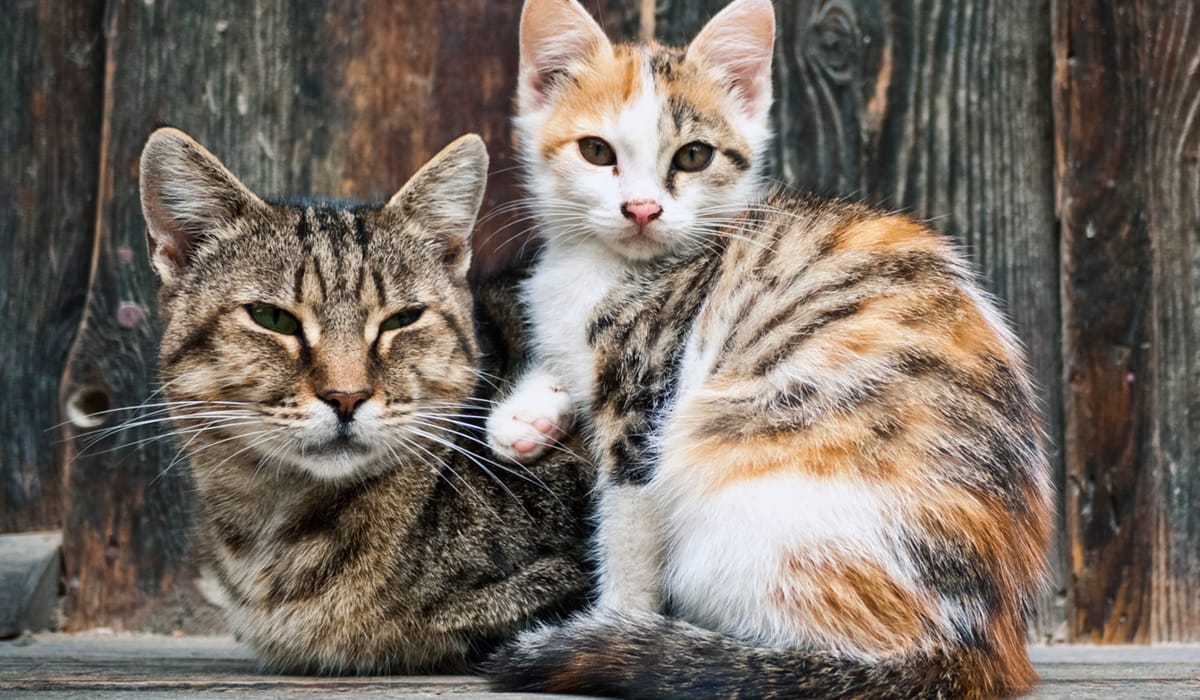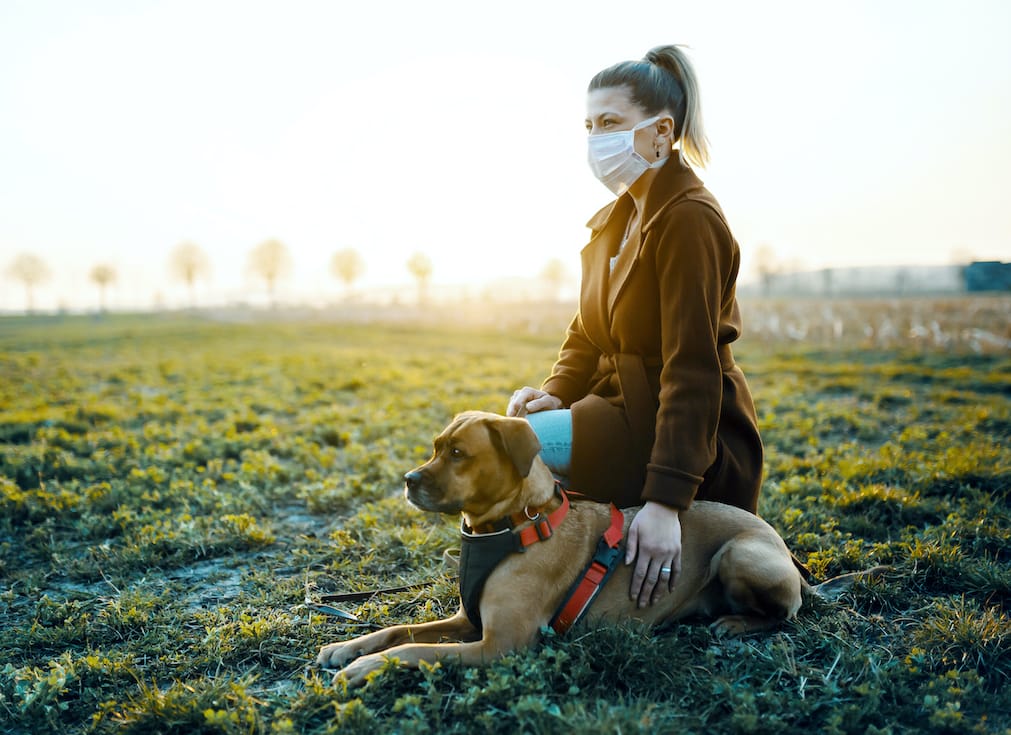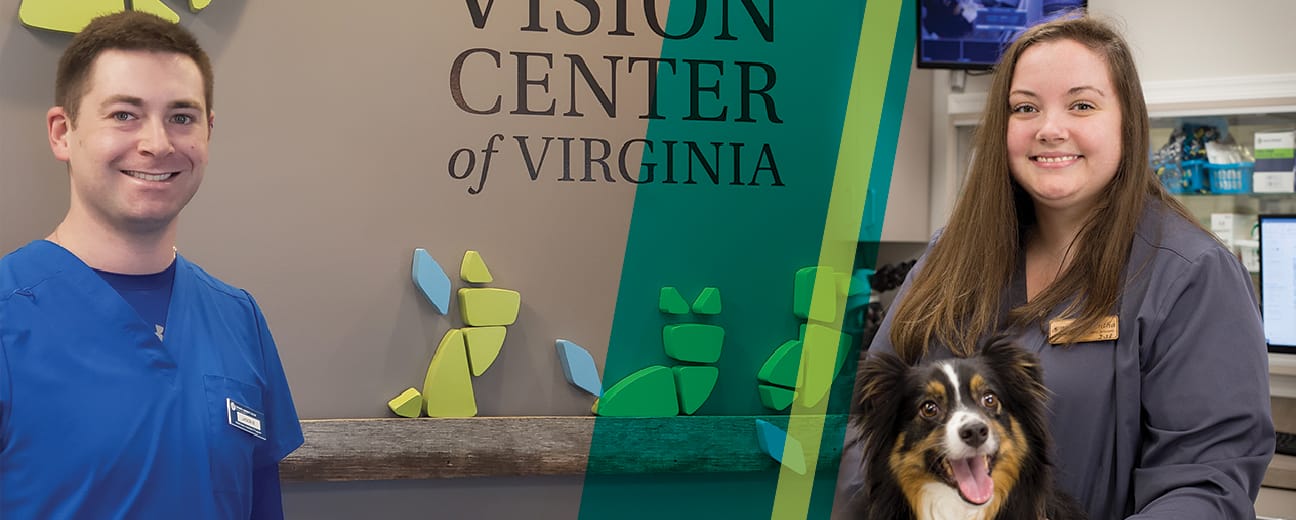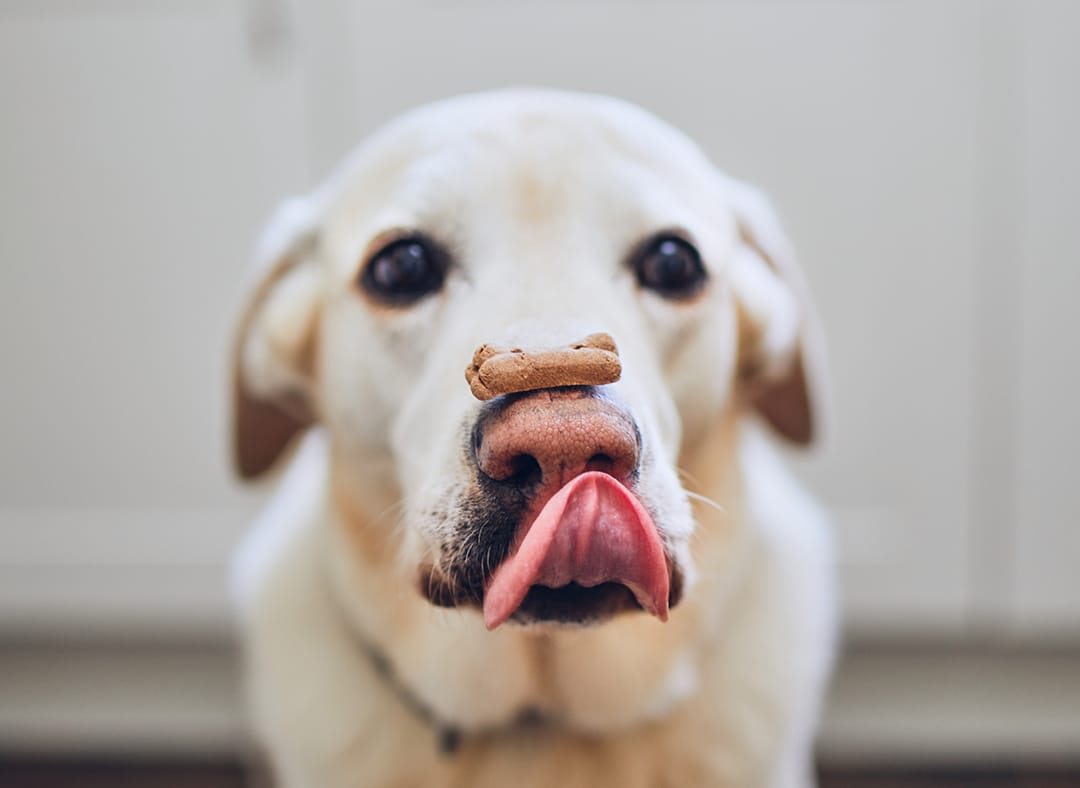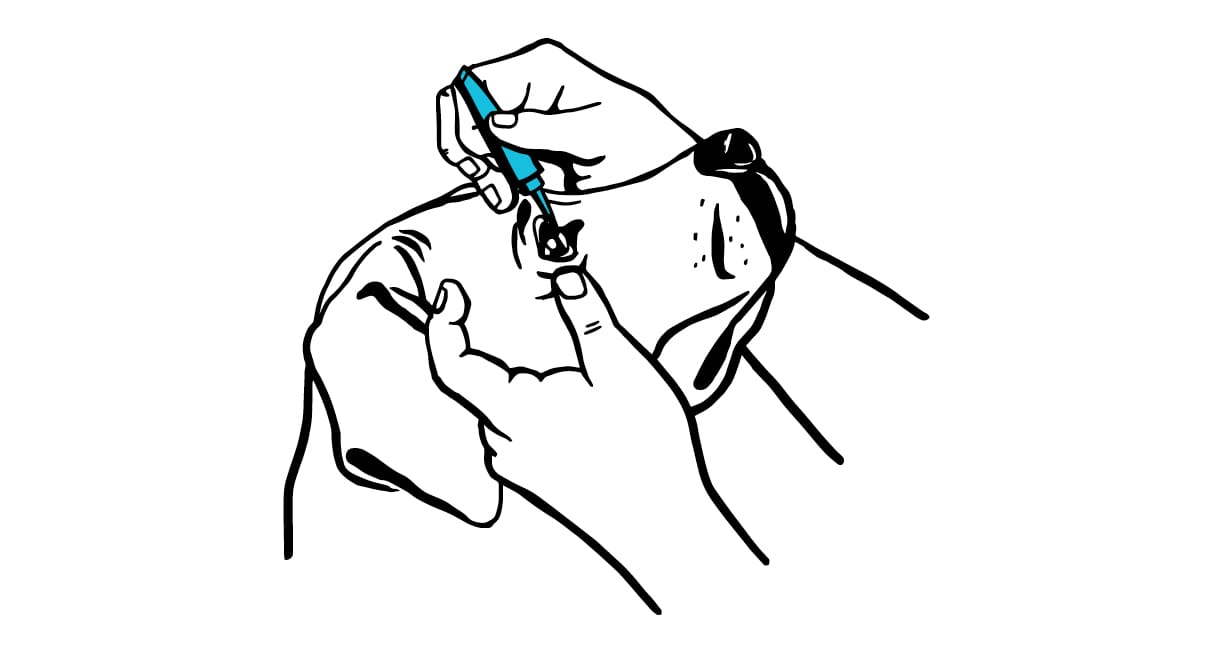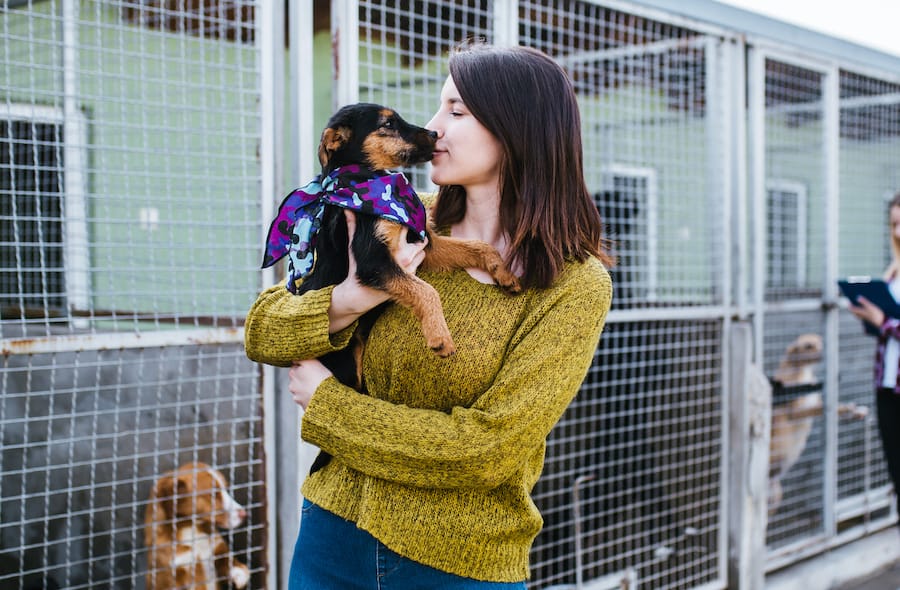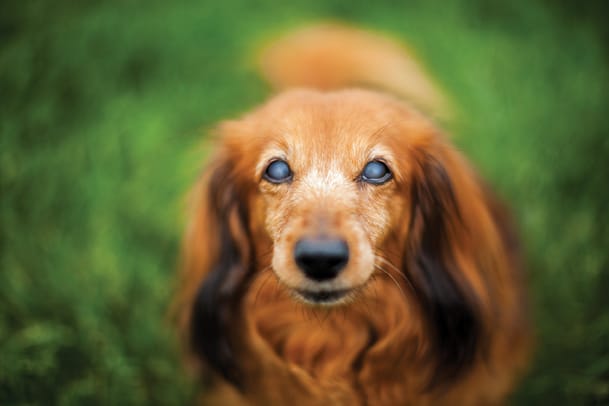Local Veterinary Community Unites for Third Annual Coastal Virginia Veterinary Conference
On Saturday, September 27, veterinary professionals from across Southeastern Virginia came together in Virginia Beach for the 2025 Coastal Virginia Veterinary Medical Association (CVVMA) Conference—a full day of advanced continuing education, hands-on labs and peer-to-peer collaboration. What set this conference apart was not just the robust educational lineup or the CE credits offered, but that local veterinarians developed the event for Coastal Virginia’s veterinary community.
Play it Safe: Avoiding Eye Injuries at the Dog Park
Summer fun at the dog park can quickly turn serious if your pup suffers an eye injury. Discover practical tips to prevent canine eye injuries, recognize the most at-risk breeds, and learn what to do if trouble arises—so every visit is safe and enjoyable.
Focused on Care: Inside the Ophthalmology Training Program at Animal Vision Center of Virginia
At Animal Vision Center of Virginia, specialized eye care for animals goes together with mentorship, collaboration and a deep sense of purpose. In this Q&A, we hear from Dr. Sydney Hall, who recently completed her internship and is now a first-year Ophthalmology Resident, and Dr. Victoria Perez, currently in her third and [READ MORE]
History Meets Modern Care at Animal Vision Center of Virginia
At Animal Vision Center of Virginia, we’re proud to offer advanced animal eye care in the historic Pembroke Manor House. Explore how we blend modern veterinary services with the charm and legacy of this Virginia Beach landmark.
Meet Mr. Whiskers
If you’ve visited our Pembroke Manor House, you may have met Mr. Whiskers—the Maine Coon with a personality as impressive as his fluffy coat. Maine Coons are charming and gentle, but also prone to eye issues such as conjunctivitis, entropion, and cataracts. Learn how the Animal Vision Center of Virginia supports feline eye health and what signs to watch for in your own furry friend.
Convergence of Community and Care Help Rescued Dog See a Better Life
By Dr. Heather Brookshire
When it comes to helping animals in desperate situations, it often takes a village—communities, volunteers and medical professionals—working together to create change.
This certainly was the case for a dog we treated recently at Animal Vision Center of Virginia, through the efforts of a colleague, Dr. [READ MORE]
Spring Eye Allergies in Dogs: What Pet Owners Need to Know
Spring in Virginia brings more than just beautiful blooms – it can also mean eye allergies for dogs. Learn about spring eye allergies in dogs, symptoms to watch for, and how to protect your pet’s vision in Virginia. Plus, discover how to recognize and manage Allergic Conjunctivitis in your beloved canine companions.
Celebrating Collaboration: Animal Vision Center of Virginia’s Open House Success
Animal Vision Center of Virginia’s recent Open House event at Pembroke Manor House in Virginia Beach brought together veterinary professionals from across Coastal Virginia, fostering connections and celebrating shared commitment to pet care. It was a pleasure to connect with our referring veterinary colleagues, and we are so grateful for the opportunity to celebrate and gather.
What Does a Licensed Vet Tech in Ophthalmology Do?
Curious about the role of a Licensed Veterinary Technician in the field of Veterinary Ophthalmology? In this feature, we spotlight two of our LVTs who work closely with veterinary ophthalmologists to ensure the best outcomes for their patients. At Animal Vision Center of Virginia, we are lucky to have two exceptional team members, Jason Ball and Jessica Turman, whose expertise and passion play a crucial role in the care of our furry patients.
Why Does My Pet Have a Third Eyelid?
At Animal Vision Center of Virginia, we often assume pet parents know about their pet’s ‘third eyelid.” However, some owners may not be familiar with this anomaly. If you are among the curious, here’s a quick tutorial! Dogs, cats, birds, and some reptiles and mammals have three eyelids that help protect and lubricate their eyes: Upper eyelid: Like humans, this eyelid helps close the eye. Lower eyelid: This eyelid protects the eye and keeps it moist, like the upper one. Nictitating membrane: Often called the “third eyelid,” this thin, translucent membrane sits inside the lower eyelid in dogs and cats. It plays a crucial role in tear production, responsible for 40-60% of the tears.
When Should Your Pet See an Animal Ophthalmologist?
Your pet’s eyes are red, tearing and swollen. Or it is pawing at the eye or bumping into furniture. It is natural to worry. How do you know if a general veterinarian can help or if you need a specialist? Many of ocular conditions that affect pets are ones that humans may experience, including corneal ulcers, glaucoma, dry eye, and excessive tearing. Some eye conditions, like cherry eye (a prolapsed nictitating gland) or entropion (where the eyelid turns inward), are visible with the naked eye.
Treating animal eyelid masses is easy with a “snip-and-freeze” solution
By Heather Brookshire, DVM, DACVO
Eyelids perform the critical function of protecting the surface of the eye. An irregular eyelid margin that develops due to a tumor can lead to complications, potentially causing discomfort and impaired vision in people—and pets. In the animal world, these “eyelid masses” develop most commonly in [READ MORE]
Healthy eyes help horses live a safe, productive life
A Q&A with Brianne Radulovich, DVM, Comparative Ophthalmology Resident
Eyecare for horses? Just like us, horses are prone to ocular issues. With their horizontally, elongated pupils, a horse’s eye is eight times larger than the human eye. They use it for light capture and motion detection. With a total vision [READ MORE]
Common dog and cat eye injuries
Causes, treatment and how to avoid them
Dogs will be dogs. No matter how attentive the pet’s parent is, there are times when animals will dig in the dirt, paw at their eyes or get in a tussle with another pet. Seemingly minor ocular irritations can turn [READ MORE]
Supporting Animal Eye Health through OFA Eye Certification Exams
Just as in people, genetics plays an important role in an animal’s development. Their physical traits and habits are often determined by DNA, and genetic testing can help identify potential health issues in pets (including their eyes) so that owners can make informed breeding decisions.
Our practice is proud to provide [READ MORE]
AVCVA office manager has a passion for pets—and this practice!
Many pet parents know Melissa Noblett as the “face” of Animal Vision Center of Virginia. As the practice office manager, she makes certain that every visit is a pleasant experience and that they leave with a clear understanding of the treatment plan and future goals. Coastal Virginia’s veterinary [READ MORE]
Helping Service and Working Animals See a Better Life
Since opening Animal Vision Center of Virginia in 2015, Dr. Heather Brookshire has offered free eye-screening exams year-round for service and working animals in Hampton Roads. She has a passion for these furry companions that assist people with daily living needs, as well as working animals that support police and rescue [READ MORE]
Healthy Teeth can help Save your Pet’s Eyes
The Connection between Eye Disease and Dental Health
By Dr. Brianne Radulovich, DVM, Comparative Ophthalmology Resident
Your pet’s bad breath may mean more than having to brush their teeth. This can signify deeper disease and lead to serious complications, including [READ MORE]
Gifting local shelters for the holidays
Helping our region’s homeless pets is one of the greatest gifts you can give
Amid this holiday season and your search for gifts to suit family, friends and pets, we hope you will consider supporting animal shelters, SPCAs and animal rescue organizations here in Hampton Roads. [READ MORE]
Cataracts and Other Common Eye Issues in Senior Dogs
Just like human eyes, dogs’ eyes change as they age. These changes can be concerning for pet parents when they see a difference in the appearance of their dogs’ eyes. Or, if they notice other signs, such as squinting, scratching or pawing at the eye and bumping into objects at [READ MORE]
Pet Portraits are Up!
We are pleased to unveil the results of our In Focus Pet Photo Contest! View the “gallery roll” of all the stars below or view the artwork in person at our Pembroke Manor House location in Virginia Beach. [READ MORE]
On the Air with WHRO Public Media News Week
Thank you to Doug Boynton and WHRO Public Media for inviting Dr. Brookshire to talk about National Service Animal Eye Examination Month free eye screenings on their “News Week” audio news magazine. The program is part of The WHRO Voice, featuring programming specifically designed for and primarily directed [READ MORE]
Free Eye Screenings for Local Service Animals in May
There are times when even the most devoted caregivers need a little TLC—even furry ones with four legs. May is National Service Animal Eye Examination Month, and Animal Vision Center of Virginia will perform free eye screenings for local service animals in May for owners who schedule [READ MORE]
Why it’s Important to Keep an “Eye” on your Pet’s Ocular Health
The value of having animals undergo an annual physical checkup is widely known and practiced. But many pet owners don’t always recognize that eyesight quality is just as important for their pet’s overall health. In Focus caught up with Dr. Heather Brookshire, who provided an overview of veterinary ophthalmology and [READ MORE]
Traveling with Pets? Friendly Skies await you and Fluffy with these Safety Tips
Do you enjoy vacationing with your pets? Or have you had to leave home in an emergency and take your animals with you? We often think about how to keep our furry friends safe at home. But it is just as important to consider safe ways to transport them for [READ MORE]
Make Preventive Care a Priority for your Pet this Year
New Year’s resolutions are now in play. It seems everyone we know is contemplating ways to eat healthier, move more and reduce stress. Scheduling a checkup with your physician is an excellent step to address such questions and keep potential health concerns at bay. And guess what? It is also [READ MORE]
Seven Years and Counting
Around this date in 2015, we were just putting the finishing touches on our practice on Old Great Neck Road and opening Animal Vision Center of Virginia for the first time. At our grand opening celebration, we featured tours of our facility, held an agility course and petting zoo on [READ MORE]
This Volunteer Raises Puppies with a Purpose
By Heather Brookshire, DVM, DAVCO
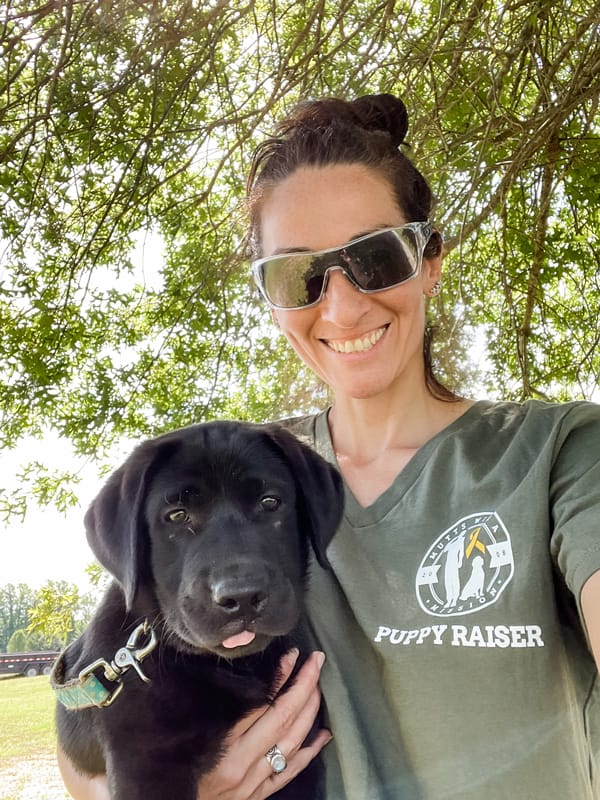
By day Nicole Ballard works with animals as a licensed veterinary technician with Coastal Virginia Veterinary Dermatology. Off the job, she is a foster rock star, volunteering her time fostering and training [READ MORE]
10 Dog-Friendly Places For You and Your Bestie
Walking your dog in the neighborhood is fine for the weekdays. But when the weekend rolls around, try planning an outing a little further from home. Now that summer is here, this is prime time for play time! So, grab your walking leash, a waste bag and water for your [READ MORE]
We treat cats too! Common feline ocular conditions
By Heather Brookshire, DVM, DAVCO
We see a lot of dogs at our practice, but we give equal time to our feline patients too! Cats can develop a number of ocular conditions, and we thought it would be helpful to outline some of the common eye issues in cats and how we treat them.
To [READ MORE]
Not One More Vet. My Community’s Hope for 2022
By Heather Brookshire, DVM, DAVCO
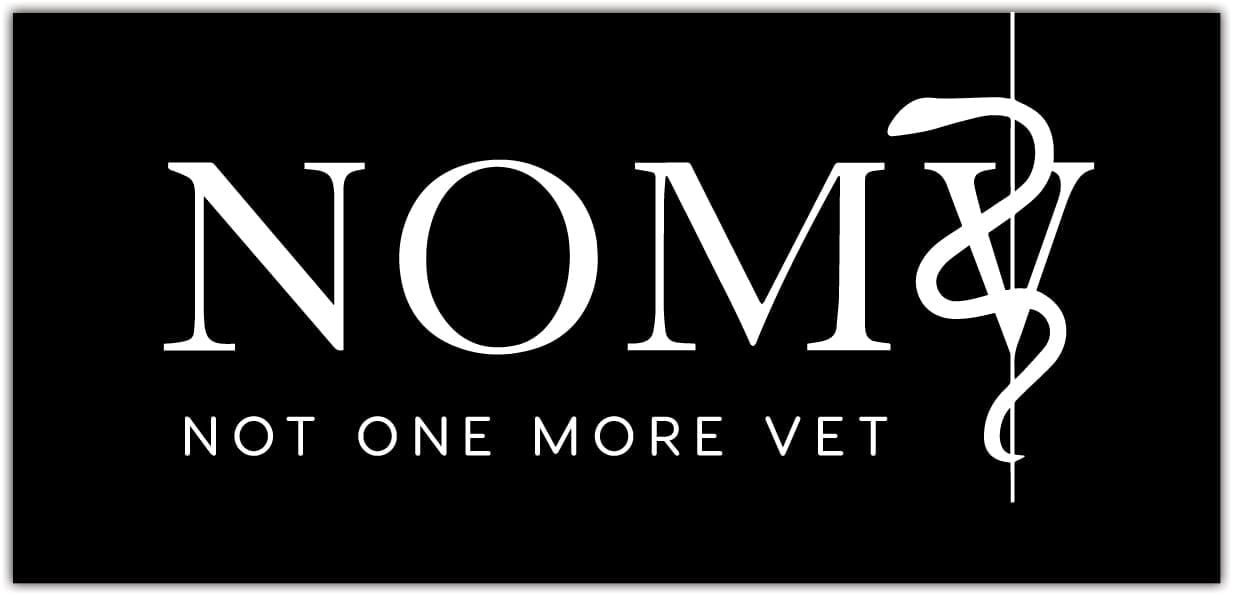
Keeping an Eye on Hypertension in your Pet
By Amanda Romaneck, DVM, Ophthalmology Resident
You or someone you know may have hypertension, also known as high blood pressure. But did you know that dogs and cats can be diagnosed with this condition too?
Systemic hypertension happens when there is a persistent elevation in one or all blood pressure parameters [READ MORE]
Keeping your Pets Safe over the Holidays
By Dr. Ashley Powell, DVM
The holidays are almost here! Soon, we’ll be putting up decorations, preparing holiday meals and treats, and convening with family and friends—furry ones included. To ensure that this time together is safe and enjoyable for you and your four-legged companions, we have compiled a [READ MORE]
What to expect at your pet’s first ocular exam
The value of having animals undergo an annual physical checkup is widely known and practiced. But many pet owners don’t always recognize that eyesight and ocular health are an integral part of their pet’s overall health and wellbeing. You may have wondered what takes place during an initial examination. [READ MORE]
Wear it properly, wear it proud! E-collar tips for you and your pet
Your pet just underwent ophthalmic surgery and has been given an E-collar to wear. It may seem novel or amusing at first, seeing your pet adorned in the “cone of shame.” Soon, clumsiness ensues. Doorjambs, water bowls, even children and the backs of legs get in the way of the [READ MORE]
Advice for New Pet Owners
Animal Vision Center of Virginia is a proud member of the Coastal Virginia Veterinary Medical Association, a charitable organization that supports our region’s veterinary community. As part of the organization’s region-wide educational outreach initiative, they have provided the following tips and advice for new pet owners. We hope it is [READ MORE]
Protect Your Pets from Summer’s Sizzling Rays
Warm weather has arrived in Hampton Roads. That means we’ll be ramping up the fun factor when it comes to outdoor play for us—and our pets. Just as you would protect yourself against summer’s sizzling rays and temperatures, we should also take similar precautions on behalf of our canine and [READ MORE]
Diabetes and the Eye
Diabetes mellitus affects dogs and cats in much the same way it affects humans. Most people, however, are unaware of the numerous ocular changes that can develop secondary to the condition. This can include KCS (dry eye), corneal changes, rapid cataract formation, uveitis and hypertension/retinal changes. Read on to learn more [READ MORE]
Interest in eyes leads to fulfilling profession for Dr. Amanda Romaneck
It was a college lecture that first drew Dr. Amanda Romaneck into the field of veterinary ophthalmology, and she’s been learning, teaching—and now practicing—ever since. As a specialty ophthalmology intern (and soon-to-be resident) with Animal Vision Center of Virginia, she assists Dr. Heather Brookshire with patient exams and [READ MORE]
A shortcut to referrals is just a click away
At Animal Vision Center of Virginia, we are dedicated to providing the highest quality ophthalmic care for both our pet patients—and those of our referring veterinary partners, like you. To help make referrals and consultations easier on your end, we are launching a mobile-friendly Referral & Consultation Request Form especially for our [READ MORE]
Earth-Friendly Lifestyle Tips for You and Fluffy
What are your plans to honor Earth Day this year? Some of our team members will be getting back to nature by hiking in nearby parks, walking on the beach and enjoying time outside. Of course, all of these activities will involve their pets too! This had us thinking about [READ MORE]
Meet Juleen Ballance, a Caring Advocate for Virginia Beach Shelter Pets
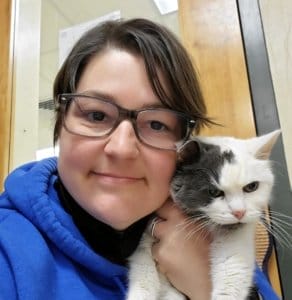
Feline Herpesvirus and Treatment
If you have noticed nasal congestion, discharge and signs of a ‘pink eye’ in your cat, they may have Feline Herpesvirus. This viral upper respiratory infection is common and highly contagious. Read on to learn more about this condition, causes, and how it is treated.
Common and highly contagious, Feline herpesvirus (FHV-1) [READ MORE]
Improving Pet Vision is a Passion for Dr. Taylor Belk
Have you met Dr. Taylor Belk? Animal lover, bird watcher and Bulldogs fan, she recently relocated to Virginia Beach to join Animal Vision Center of Virginia (AVCVA) for a three-year ophthalmology residency.
Originally from Macon, Ga., she holds a Bachelor of Science degree in Forest Resources and a Doctor [READ MORE]
Caring for Your Pets When the Weather is Frightful
Tucked as we are in this temperate corner of Southeastern Virginia, we don’t face freezing weather too often. On the occasions we do get snow and ice, we need to make sure our pets can go outside to stretch their legs, take a walk and do their business without harm. [READ MORE]
Uveitis Symptoms Reveal Lyme Disease in Most Unusual Case
Meet Prancer, a sweet lady we met last fall. After presenting to a local veterinary hospital with signs of decreased energy and appetite and squinting in her eyes, fluids were administered under the skin for concern of a toxin ingestion and stomach pain.
Over a few days, things changed quickly. Prancer [READ MORE]
New Year, New Goals
Amid this most unusual year, we are grateful for so much—including the relationships we share with our amazing clients, their sweet pets and our Hampton Roads veterinary professionals. We’ve enjoyed seeing you at our drive-up and telehealth appointments, and we send glad tidings for the year ahead. Perhaps like you, our [READ MORE]
Congratulations Dr. Heather!
We are so proud of Dr. Heather Brookshire. Last month, Inside Business magazine named her as one of Hampton Roads’ top Women in Business for 2020. These awards celebrate women who are successful in their business and careers, while serving as mentors to others and volunteering in their community. It’s no surprise [READ MORE]
Adopting a pandemic puppy? Five tips for socializing your new companion
Hampton Roads animal shelters and rescue groups have received a lot of love from residents who have adopted pets since the COVID-19 coronavirus surfaced. Early in the pandemic, kind-hearted residents answered the organization’s call to “clear the shelters” and adopt. As the weeks became months, still more pet lovers turned [READ MORE]
Uveitis Causes and Treatment
Uveitis is an ocular condition that occurs when the uveal tract within the eye becomes inflamed, which can lead to alterations in vision, intraocular pressure and comfort. Read on for common clinical signs, how we test for the condition, causes, and treatment options.
Uveitis is inflammation of the uveal [READ MORE]
Welcome Dr. Taylor Belk and Dr. Amanda Romaneck to AVCVA!
We’re expanding our team to better serve you!
Our family is growing. Animal Vision Center of Virginia opened in 2015 with just one team member extraordinaire and a very busy Veterinary Ophthalmologist. Over the years, we have expanded our staff and practice space incrementally to meet the needs of our [READ MORE]
August is “Clear the Shelters” Month
Do you long to adopt all the animals that need forever homes? We feel the same way, and the time is near to show a little love to our region’s shelter and rescue pets. From Aug. 1-31, 2020, animal shelters across the country will be teaming up with NBC and [READ MORE]
On Woodsy Walks, Be Sure to Check Your Dog for Ticks
We love these long summer days, giving us more time outside playing, exploring and hiking with our pets in the great outdoors. Just as you would check yourself for ticks after tromping through woodsy areas, you should examine your dog’s coat as well. In addition to causing serious medical conditions [READ MORE]
Summer Eye Issues
It’s fun to take our pets to the beach or park, but we occasionally see ocular problems such as conjunctivitis (pink eye) or corneal ulcers from the irritating effects of sand and wind-borne grass and particles on the surface of the eye. Pets are especially prone to these medical issues [READ MORE]
What You’ll Need for a Pet Preparedness Plan
No one wants to think about becoming ill or having a medical emergency, but it’s important to make sure you have plans in place for you and your loved ones—including your pets. We talked about this at a recent staff meeting, as it relates to COVID-19. If one of us [READ MORE]
Pannus Cases Increase with Summer Heat
With the arrival of the summer sun and increased UV exposure, we usually see an uptick in cases of pannus at our practice. Also known as chronic superficial keratitis, pannus is a progressive inflammatory autoimmune disease of the cornea. It is seen most commonly in German shepherds and related [READ MORE]
Good Manners Count When Out with Your Dog
 Do you remember Benjamin? We posted his photo on Facebook a few weeks ago, showing the remarkable recovery he made following a dog attack. This good-natured pup suffered severe trauma of his left globe and was initially given a 50% chance [READ MORE]
Do you remember Benjamin? We posted his photo on Facebook a few weeks ago, showing the remarkable recovery he made following a dog attack. This good-natured pup suffered severe trauma of his left globe and was initially given a 50% chance [READ MORE]
When It Comes to Caring for Feral Cats, Vaida Moore is a FAN
Vaida Moore founded the Feral Affairs Network (FAN) in 2016 to help address the problem of overpopulation of community cats in Hampton Roads. The nonprofit organization’s primary goal is to trap-neuter-return (TNR) feral or community cats to their environment, while providing support to their caretakers in need. Ultimately, this results [READ MORE]
The Calming Power of Pets
You’re a pet owner, so you already know that spending time with your lovey makes you feel good. But do you know that pets can help boost levels of serotonin and dopamine, lower blood pressure and improve your overall health? That’s the therapeutic power of pets, according to an article [READ MORE]
Traveling to See Us For Cataract Surgery? Here’s What You Need to Know.
We often see clients from out of the area, who travel to see us for their pet’s cataract surgery. We thought it would be helpful to explain what happens before, during and after surgery so you can plan accordingly.
Cataract surgery is very similar to cataract surgery in people. A small [READ MORE]
Treating Pet Patients in the Time of Coronavirus
Just a few months ago, life was so much simpler. We ran errands, met friends after work and hit the gym without a second thought. That changed with the emergence of COVID-19. Faced with health updates that seemed to change by the hour, medical providers, like us, worked swiftly to [READ MORE]
Pet Patient Focus on Brady Colby—Seeing 20/20 in 2020
In the summer and fall of 2019, Donna Colby noticed changes in her dog Brady’s eyes. They had a cloudy appearance, along with redness, irritation (rubbing) and a clear discharge. Donna told us her pet was also demonstrating concerning behaviors including clumsiness that led to several falls, failure to clear [READ MORE]
Saving One Dog at a Time – Meet Dr. Turkan Ertugrul
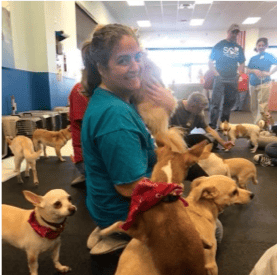 Dr. Turkan Ertugrul wants to save all the dogs and cats she can. The founder of the Virginia Beach-based Saver of Souls Pet Rescue, she is slowly, but surely making a dent in [READ MORE]
Dr. Turkan Ertugrul wants to save all the dogs and cats she can. The founder of the Virginia Beach-based Saver of Souls Pet Rescue, she is slowly, but surely making a dent in [READ MORE]
Friendly New Faces at AVCVA!
You may have noticed friendly new faces at Animal Vision Center of Virginia. We are pleased to welcome Jason Ball, veterinary assistant, and Samantha Gossman, our new receptionist.
A Kempsville High School graduate, Jason began working with us in 2019 as an intern from the Tidewater Community College’s Veterinary program, where [READ MORE]
Superfoods for Super Pets!
What’s on your Thanksgiving menu? Turkey, green beans, sweet potatoes? Sounds good to us, and your pet will probably like these too. As long as the turkey treat doesn’t have bones and isn’t too greasy, that’s fine in moderation. And so are the green beans and sweet potatoes, both loaded [READ MORE]
How to administer eye ointment to your pet
If only giving medications to your pet was as easy as waving a magic wand. Animals have an intuitive sense of reading our emotions. If we’re nervous about having to give them a pill or eye drops, they will become anxious, too.
Over the years we’ve mastered the art of administering [READ MORE]
Saving Lives, One Pet at a Time
This week is National Animal Shelter and Rescue Appreciation Week, honoring these safe havens for animals and the wonderful people who work there. At AVCVA, we love partnering with our local shelters and rescue groups by providing eye screenings and care to those with ocular issues. There are ways that [READ MORE]
Focus on Corneal Endothelial Degeneration
Corneal endothelial degeneration (CED) is an age-related process by which the single layer of cells on the inside of the cornea (endothelial cells) prematurely decline in number and function. These cells contain tiny “pumps” that normally regulate the amount of fluid within the cornea throughout life and help to ensure [READ MORE]
Stay Cool Out There!
Summer’s here. Can you feel it? If it’s too hot for you to be outside or in a parked car, then it’s too hot for your pets. Be mindful of hyperthermia and heat stroke, conditions that can arise when your dog’s natural ability to regulate temperature by panting [READ MORE]
People Helping Animals – Meet Madison Rankin of Compassion for Canines

Hurricane Season is Here. Are You and Your Pets Ready?
Hurricane season began on June 1, and we hope that you have prepared an evacuation plan for you—and your pets. Recently, our staff put together a mashup of the items we’ll be gathering for our pets at the first warning sign of the season. We hope this is helpful to [READ MORE]
The Role of Therapy Dogs in Times of Tragedy
In a local news article covering the mass shooting at the Virginia Beach municipal center, I read that the City of Virginia Beach arranged for therapy dogs to be on site for employees to connect with in the days following the tragedy.
It’s amazing how therapeutic petting a dog can be [READ MORE]
Expansion Plans to Better Serve You
If you’ve stopped by Animal Vision Center of Virginia lately, you’ve may have noticed a little “home improvement” activity in the works. Yes! We are in the process of expanding our practice into roomy new space that has become available next door. When the dust settles in June, we will [READ MORE]
Be Kind, I’m Blind
You’ve just learned that your dog is slowly losing his or her vision, or perhaps it happened quickly and your pet is now blind. This will be a time of transition for you and your pet, but with some adjustments to your home and routine, a wonderful new life awaits [READ MORE]
“SEE” Us at the Seaside CE Series
Our friends at The Center of Veterinary Expertise (COVE) have been super busy, handling final arrangements for their second annual continuing education event for the region’s veterinary practitioners. The Seaside CE Series, May 28-31, will bring together local professionals from the veterinary field for a four-day series of classes, courses [READ MORE]
Helping Hard-working Service and Therapy Animals See Clearly
While dogs don’t wear glasses, they do need to have their eyes checked regularly, especially if they are a registered service or therapy animal. May is National Service Dog Eye Examination Month, and many board-certified diplomats of the American College of Veterinary Ophthalmologists, like me, will offer free screenings [READ MORE]
No More Tears!
Have you noticed tearing under your dog’s eyes, or do you see staining under or around her eyes as a result? Tearing is caused by an overflow of tears onto the face that is often due to the way the eyelids are shaped. While each case should be evaluated to [READ MORE]
Presidential Pets
President’s Day seems the perfect holiday to honor the pets that accompanied their respective Commanders in Chief to Washington, D.C. After all, how many animals can claim an extended stay in the most famous American residence of all? From George Washington, who brought Snipe the parrot (and an array of [READ MORE]
How to Give Your Pet a Pill
If only giving medications to your pet was as easy as waving a magic wand. Animals have an intuitive sense of reading our emotions. If we’re nervous about having to give them a pill or eye drops, they will become anxious, too.
Over the years we’ve mastered the art of administering [READ MORE]
Powerhouse of a Pet! Meet the English Bulldog
If you own or know an English bulldog, you understand what sweet and dependable pets they can be. Originally bred for working with bulls, this canine can be dogged in their pursuits, but are also known for their congenial temper and laid-back ways. That sweet flat face with all those [READ MORE]
Welcome to our Blog!
I couldn’t have asked for a better job. I love what I do and look forward to coming to work each and every day. Seeing our pet patients, meeting their owners and conferring with their family veterinarians are the most gratifying aspects of owning and operating Animal Vision Center of [READ MORE]
